#there is so much evil in the world perpetrated by people who refuse to see that they are deeply evil
Explore tagged Tumblr posts
Text
Mary, mother of the unborn, pray for us.
Holy Innocents, pray for us.
#i had to disable reblogs on my jerome lejeune post because the eugenicists found it#or what's more puzzling: people who claim that eugenics is bad yet that abortion must remain a right#few things have hurt my heart more than seeing a ridiculously long reply arguing why women should be allowed to kill their down's children#one of those moments where you have to pray for divine mercy for them because i'm sure not going to be able to give it#not least because to have mercy the person has to realize they've done wrong#it baffles me that people can argue 'killing children is good'#and villify people who say 'killing children is bad'#and still think they're the good guys#there is so much evil in the world perpetrated by people who refuse to see that they are deeply evil#i would call it cartoonishly evil if that didn't imply a level of innocence which this stance in no way can possess#it's full-on mustache twirling evil overlord villainy by people who try to argue that they're the compassionate ones#and to see it on the feast of the holy innocents makes it hurt even more#perhaps it's heaven telling me to pray even harder
20 notes
·
View notes
Note
the take that lawlight and other ships involving Light and an older character are not problematic because “Light Yagami is incapable of being groomed” is doing rounds on dntwt again and holy shit it drives me insane every time i see it because
(“you” below refers to people with this take, not you)
1. what the hell is this victim-blaming logic when you’re literally talking about it as something applicable to the real world. no one is immune to being groomed.
2. to speak of the idea in-universe, I’m pretty sure that is just factually untrue. Light can definitely be groomed and has many traits that make him susceptible
3. no one is immune to being groomed. Light being manipulative, “evil”, intelligent or ““mature for his age”” (oh boy) does not prevent him from grooming in any capacity. in fact those traits combined with his arrogance make him a easy target as long as the perpetrator knows what to say
4. if you’re uncomfortable with the idea that lawlight is grooming, you can just think and say that you do not view lawlight’s dynamic as grooming. that would be reasonable, at least in comparison to fucking “light is immune to being groomed”
5. (pardon my language but) why in the fuck would you phrase it like “I’m sorry but if you can *insert a bunch of things that don’t prevent anyone from being groomed* then I’m NOT gonna believe you got groomed” like do you know how you sound right now????
6. have I mentioned that no one is immune to being groomed.
frankly, as someone who doesn’t usually prefer to view lawlight as full-on “adult grooming child” (I do think the existing age gap is a very intriguing factor but generally it is not my top preference to take it to the extreme in my own conception of it; it is very interesting to see as an alternative though, I respect it), I feel MUCH safer around everyone in this dn tumblr circle than people who say that shit. respect and salute to you all 🫡
Oh, ick!! Thank you for sharing!
Dude I am so afraid of dntwt I refuse. Of course the drawback to that is Tumblr doesn't allow the kind of images that Twitter does so I miss out on that but with the combination of Elon Musk and the nazis and whatever nutcase discourse that regularly happens over there, I'm not touching that shit with a ten foot pole even for the sake of porn 😭
Yeah no the solution to something that makes you uncomfortable is never ever to blame the victim. (Honestly, and I'm psychoanalyzing again, I think part of what makes this circle so safe is that we treat this shit with the gravity it deserves, even when we're sexualizing it. Because what we're sexualizing IS the horror. The horror is what's hot about it, but the horror reaction implies that it's something terrible and serious. It's not normal or okay or impossible.)
I'd like to explore the mention of discomfort with the topic. That shit is normal and human. Not everyone likes sexualizing horror, not everyone understands everything you need for it to feel safe, AND, and this is a wildly different but still important factor in fandom interaction, not everyone DOES think it's plausible for the universe. You can think things don't match your headcanon for how you interpreted the work! I made a post yesterday along those lines about a fanfic I was reading! The thing is, don't attack real people (if you think someone's handling a subject in fiction in a way that does real harm, like E.L. James for my example, you don't send hate mail, you tell people why it's harmful and boycott the work); be aware that canon is subjective even if you have some textual evidence to back your view up - feel free to present said evidence, but nobody has to take it to heart and you can't make them; and above all, if it's pertaining to these types of topics, DO NOT USE THE VICTIM TO CONTRADICT IT. USE THE SUPPOSED PERPETRATOR. If you don't think L is a groomer, say so, if you don't think lawlight involves grooming, go for it, but Light Yagami better not fucking be a pillar of your argument because victims are never the reason something happened to them, which means they are also never the reason something didn't happen. People astound me.
Be kind everybody ❤️
#serious topic aside i think L should groom the shit out of light because its hot for me personally#although i dont think there's enough evidence to say thats exactly what might have happened in canon#death note#light yagami#lawlight#l lawliet#death note ask
23 notes
·
View notes
Text
By pausing time on October 7th and excluding its aftermath, the tours reinforce that myopia, consolidating a focus on Jewish victimhood and a refusal to see Israel as the perpetrator of Palestinian suffering. In the process, they succeed in bolstering American Jews’ sense of identification with Israel. As one rabbi who participated in a Federation mission from San Diego wrote upon her return home: “I saw the result of evil. I feel more committed to Israel and its future than I have felt in a long time.
(...)
Scholars have explored the ways in which visiting sites of atrocities, however disturbing, can also be “a means to affirm and reproduce particular identities,” in the words of Duncan Light, a professor of tourism studies. Visiting the 9/11 memorial—which drew 37 million people between its opening in 2011 and 2018—can bolster Americans’ sense of patriotism, even in the face of the long and deadly wars that followed; visiting the beaches of Normandy can inspire pride not only in the Allies’s World War II victory, but in the US-led world order it produced.
(...)
Death camp tours “make the victim so much the object of identification that one comes to see oneself as if one is at the gates of the crematorium, instead of [Israel] being a country with nuclear capacity,” Feldman told me in an interview. “It becomes impossible to identify with anyone other than the victim, and the victim is me, and this is our eternal condition.”
(...)
Not unlike prior forms of Jewish “dark tourism,” the trips I joined seemed intended to reassure participants that they could support Israel while retaining the moral clarity of the victim. For example, at the end of the Kfar Azza tour, Shpak, the kibbutz member, explained that the community had once been invested in peace and co-existence efforts, “but everything was broken and trampled in our children’s blood.” Shpak told our group that in the past, he had found it painful to witness the suffering of the other side. “I admit and confess that not this time. I have no sympathy for what’s happening on the other side,” he said. Other leaders on the trips I witnessed frequently glorified the war effort. In one case, a group’s Israeli driver boasted about having driven bulldozers bigger than our large bus into buildings in Khan Younis. Various guides echoed well-worn pro-Israel talking points arguing that Palestinians are not a people, or that the Nakba—the mass dispossession of Palestinians in 1948—was not a case of ethnic cleansing. This messaging has clearly affected participants. “There aren’t a lot of ‘innocent’ Gazans,” one member of a rabbinic trip wrote in a blog post. “After hearing the stories from those who were there, I am truly sad to say that this is the reality.” Greg Harris, a rabbi from Bethesda, Maryland, who led a trip for his congregation, told me that while, in the US, “it is perceived that Israel is retaliating against the Palestinian people,” in fact “that is not what is happening”—a truth that participants grasped “just by being there in Israel.”
(...)
As I walked through the festival grounds, the earth was literally shaking beneath me. The artillery fire and explosions from Gaza were the loudest thing I’d ever heard in my life, and everyone, myself included, instinctively jumped at each blast. Just two words into the kaddish that one tourist recited for the festival victims—yitgadal veyitkadash—an explosion sounded so closely and powerfully that I felt the vibrations in my spine. And yet, aside from their reflexive flinching, the tour guides did their best to ignore the din.
When trip leaders did acknowledge the sight of Gaza on the horizon, it was usually to emphasize how close danger lies to the Gaza Envelope communities. Standing at a lookout point over the enclave, Ehrlich, the tour guide, gestured back at the Israeli city of Sderot behind us, saying, “See the beautiful houses being built despite years of attacks?” And when trip leaders made note of the sounds of death all around us, it was only to assure us that we were safe. “Don’t worry too much about the booms. They’re our booms. They’re not coming in on this end,” one group I followed was told. And, later: “You’re going to hear a lot of booms. There’s currently something going on in Khan Younis, literally across the border here. It might shake you up a little bit, but don’t worry, it’s us, not them.”
(Emphasis mine)
24 notes
·
View notes
Text
by Elchanan Poupko
For centuries, rabbis around the world get up on Shabbat Zachor and speak about memory, never about violence. Not once in the past 2000 years of Jewish history – and that is a vast record to draw on – was the Biblical account of Amalek used to evoke revenge. It was always used to evoke memory. The imperative to remember the unprovoked atrocities committed against our own innocent communities.
The name of Amalek was invoked to remind us of the ubiquitous nature of antisemitism, the only hate in the world directed against people who are unknown to those seething with hate for us. People like the Houthis in Yemen who never saw a Jew in their life, yet are determined to destroy the Jewish state; Nazis in Germany who traveled hundreds of miles away from home to kill Jews in Belarus, Lithuania, Hungary, and Morocco even though they had never seen or known much about those Jews, that is the kind of evil we speak about when invoking the memory of Amalek.
In our generation, when speaking about that kind of senseless hate, we speak about the Hamas terrorists who woke up on the morning of October 7th and were willing to gable away their lives and futures to murder and burn alive people like Canadian peace activist Vivian Silver, someone who spent her life driving Palestinians from Gaza to medical appointments in Israel’s best hospitals. We invoke the memory of Amalek when we encounter something so evil it defies any logical explanation.
It is appalling to see how many people rushed to the Bible to judge Israel’s use of the memory of Amalek before looking at its use for the past 2000 years, most notably during the Holocaust.
While Germany starved to death and killed hundreds of thousands of Jews in the Warsaw Ghetto, Jews secretly published a newsletter called Kol Hamidbar in which the emaciated Jews wrote: “Many nations waged war against the Jews and did bad unto them, but Amalek, that is something absolutely different. Amalek put the destruction of Jews as a goal, a program, a method; premeditated, in cold blood, sadistically, according to a plan, organized, and with laws… Amalek and their grandson Haman are not satisfied with the killing of individual Jews…they would like to destroy the entire nation and eliminate Judaism.”
These words ring powerfully to any Jew who has seen what Hamas terrorists did on October 7th. The senseless hate that defies any logic or pattern of human conflict is simply unexplainable. The kidnapping of grandmothers from their homes and burning of babies and little girls alive with no reason whatsoever has no other language.
Jews invoke this language of Amalek when we encounter the world’s oldest hate, acted on with cruelty no human can explain. Jews have done so countless times while remembering the Holocaust and also did so while seeing the evils of Hamas on October 7th.
Like Jews after the Holocaust, the memory of Amalek’s unforgivable horrors reminds us of the need to take action. How does that action look? Years ago, speaking to congregants in synagogue, here is what I said as I spoke of the story of Amalek, and I was not the only one:
“The greatest heed to the call ‘Yidden, Nekama – Jews, Revenge’ inscribed in blood in Slabodka, Lithuania, is not going back to that town and place or to those perpetrators; it is that there are today thousands of students in Israel learning in Yeshivas named Slabodka. It is that we are undeterred in leading proud Jewish lives, laser-focused on the future while refusing to forget the past.”
Jewish revenge never looks like the acts of our enemies. We never follow in the inhumane footsteps of those who committed the unthinkable against us. This is true also concerning the horrors of October 7th.
57 notes
·
View notes
Text
I am devastated by the news that Taylor Swift had to cancel three shows in Vienna due to a threat of a terrorist attack.
This comes right after the horrifying news that children were targeted and murdered during a Taylor Swift dance class in the UK recently.
And yet, as I sit here, dwelling in the devastation of it all, I know exactly who to blame.
I don't blame the swifties, who waited for so long and travelled so far to go see her in Vienna. I don't blame them for spending a probably tremendous amount of money (no matter how much) to be there.
I do not blame the families or the children or the teachers involved in the absolute tragedy in the UK.
I blame the perpetrators. But I also blame the media. I blame the culture.
I blame the fact that we currently live in a world where it is okay to not only hate (especially female) artists to a degree where you want to harm them and their fans, but where it is okay to hate women to such an agree that you would act like this.
I have, to my enormous outrage, seen comments on how Taylor somehow deserved this. That its a "shame they caught" the people intending to harm and kill possibly thousands of concert goers. Human beings.
I have seen comments blaming Taylor for the deaths of three innocent children in the UK stabbings.
How fucking dare you.
How can you wake up in the morning and look at your own reflection in the mirror?
How can you face your family and friends?
How dare you pretend to be normal, to be a well-adjusted person while harboring these outright evil feelings.
What's wrong with this world is NOT that women and girls of all ages gather to celebrate a female artist.
What's wrong with this world is the fact that there are people out there who not only think they should not be allowed to do so, but violently try and do keep them from doing so.
I want to tell you what, and who, the common denominator in 99% of the issues the world has, are.
But I fear you're not ready to hear it.
Perhaps my opinion and response to this would be different were I not born a woman.
But I was.
And because of that, it is my eternal curse and burden to suffer under the rule of men.
To suffer under the violence of men.
To suffer under the opinion of men.
To suffer under the volatility of men.
To suffer under the oppression by men.
Every single day, I hear another story.
I will hear another story of how a man ruined a woman's life. And a lot of the time, they are never truly punished for it.
I am sick. and. tired. of men ruining the world. I am sick and tired of men running the world. I am sick and tired of men ruining women.
I am sick and tired.
Call me a misandrist. Do so rightfully. I am one.
Call me a liberal radical feminist. Do so rightfully. I am one.
Call me a social justice warrior. Do so rightfully. I am one.
But do also call me a liberal. Do also call me a feminist. Do also call me a fucking JUSTICE WARRIOR.
I refuse to diminish this, I refuse to live quietly among humans who behave this way.
My sister's boyfriend once asked me if I "could truly kill a man if it came to it."
The argument was regarding someone breaking into my home and/or rape. He did not believe I would be able to if it really came to it.
I told him, without hesitation, that I absolutely could and would.
If you try to take from me, I will snatch whatever you try to take right back. You try to rip away my dignity? My feeling of safety? My feeling of being? My right to existing? My right to living?
I will rip away yours thousandfold. I would rather die trying than give in.
I am sick and tired of men actively, aggressively and purposely ruining safe spaces for women.
We have so few of them.
And the fact that we cannot EVER keep them safe says everything we need to know about how much men in general value women.
16 notes
·
View notes
Text
THE HANNAH RAMBLE
This rapidly spirals into me plotting fanfiction. PRELUDE:
Gotta be honest. Hannah completely blindsided me. Her character did not go the direction that I thought it was going to go.
When I was studying Not Wanted on the Voyage in class, she was given a super impressive introduction: “the most intelligent character in the cast” (which I will respectfully disagree with. I think it’s Crowe, because my love for that bird is immense and unending) and her scenes in book one were stellar. I am most fond of book one Hannah. She had poise and ambition, she was menacing and mysterious. I liked that! I liked that a lot! I think she has a future in politics or perhaps as an extremely cutthroat lawyer. Unfortunately her talents keep being wasted in middle management at Applebee’s (the Upper Decks).
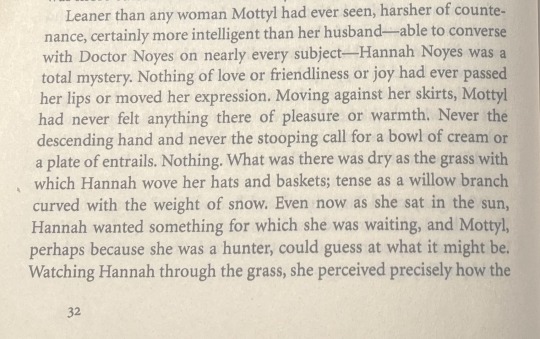

I was envisioning her throwing a coup and taking Dr. Noyes’ place as the main antagonist of the book. I feel like she had potential to be an even more terrifying villain than Dr. Noyes because she’d not only be cruel and ruthless like him, but she’d be smart, too. Noah was kind of an idiot.
The message that I was expecting from Hannah's coup is a commentary on how systemic issues by getting rid of the bad people in power; the entire structure that they were functioning under needs to be overhauled. I was expecting a story in which Noah was killed off and everyone breathed a sigh of relief, thinking that the root of evil was done with… only to discover that Noah was never the root of the evil in the first place, but rather, a product of it. His ideas are infectious; they didn’t start with him and they certainly won’t die with him.
And now that he's dead, there are some people who are very interested in continuing his legacy.
The environment that these characters were raised in is very, very flawed and we see a lot of what the culture expects from people very early on: formalities and borders are encouraged, power imbalances are essential for the structure of this society, obedience to one’s superiors is equivalent to love, differences should be eliminated, and questioning your superiors is dangerous and insulting. Noah is terrible and has committed so many atrocities that he should definitely be held accountable for, but I refuse to believe that there is anything inherently evil about him. I refuse to discount a character like him as ‘just a bad apple’ because people are products of their environment and these guys are living in a world that has a tendency to produce tyrants. You can’t say someone is ‘just a bad apple’ and ignore the same rotting barrel that all of them are showing up in and Not Wanted on the Voyage is very good at showing how all its characters are impacted by their environment
I think a lot of Noah’s strength as a character lies in his simplicity. I vaguely remember read an academic article somewhere that describes him as more like a force of nature or a strawman than an actual person, and I disagree. I think that he is painfully human. He doesn’t want to take any responsibility for his actions, because he doesn’t want to be the villain (no one does!) and he always has to be the victim. He throws his authority around and mistreats everyone around him because it feels good to be powerful and to get what you want. He’s so human and that makes him scarier because he’s the type of villain that you could realistically become by giving into your worst impulses.
I suppose that's why Mottyl was so tentative in calling him evil.

What I’m saying is: if it wasn’t Noah, it would have been someone else. Someone like him is inevitable (but so too are the people who stand up to him).
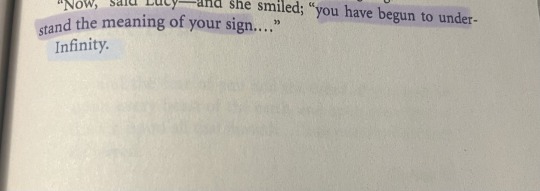
This world has a tendency to create tyrants and Hannah has been primed to be Noah’s replacement. Even the victim in a harmful system can internalize its values and they can end up becoming the perpetrator. We do see that with Hannah in the book (her treatment of Emma, for example), but on a much smaller scale than what I was expecting.
But what exactly was I expecting?
THE PART WHERE I RAPIDLY SPIRAL INTO PLANNING FANFICTION:
I was expecting Noah to die somehow (don't think too hard about how, because I sure didn't), leaving behind a power vacuum that multiple candidates would be vying to fill aboard the ark.
There’d be Noah’s sons: Shem, who’s the oldest and should be expected to replace his father… actually who am I kidding, he’s not going to be involved in this.
There’d be Japeth, who, at the core of his character, is scared; he learned, abruptly and in one of the most traumatizing ways possible, that powerful people can do whatever they want to you; but you know who never had to beg for his life and bend and bargain around the whims of stronger people? His father. If Japeth inherited that kind of power, he’d never have to be scared and powerless again.
And then there’s Lucy; yes, she wants a better world for herself and her loved ones. Yes, she has good intentions and has always done what she thinks is right, but Lucy grew up in the trigger happy, might-makes-right culture of Heaven that produced her battle-obsessed brother. We already know that Lucy has a ruthless streak:

So I want to see how far she’d be willing to go to achieve her goals. I think Lucy should commit some murders, actually. I cannot believe that her kill count during the book is a solid zero.
Friendly reminder that Lucy is basically a disgraced war general from Heaven. She has canonically led armies. So why on earth is her kill count the same as Ham’s????
Is my frustration, perhaps, anything like what Lady Macbeth felt when she was trying to get her husband to commit regicide. Actually what I said about Lucy applies to Lady Macbeth too, I want Lady Macbeth to commit a murder or two.
And finally there's Hannah, who’s ambitious and clinical and calculating and wants to carry on Noah’s legacy not out of love or loyalty to him, but because she wants the respect she’s owed. She wants to have her words spoken and heard and appreciated, she wants to be Yaweh’s new prophet, she wants the security and prestige of Noah’s position.

We'd be viewing this disaster of a succession crisis through Mrs Noyes and Mottyl's increasingly distressed narration.
Can I just say, though: Mottyl would make a fantastic diplomat. She’s comfortable talking with both humans and animals, she’s very frank but very considerate at the same time, and her greatest strength is making allies by being friendly and dependable.
‘LOCAL NEWS. Exhausted 97-year-old mother of six desperately drafts peace treaty: more at nine. Also she’s a cat.’
I think it's clear you're screwed when all your hopes are riding on the negotiation skills of a 20-year-old cat.
Anyways, this entire plot was inspired by this song:
youtube
#not wanted on the voyage#timothy findley#book analysis#character analysis#danny gonzalez#this guy's songs have been stuck in my brain for. ages. what a talented artist. what a charming young man.#youtube#just realized that my inclusion of that song implies that Noah was murdered. So there you go. That’s how he dies#my ramblings
8 notes
·
View notes
Text
So that was Temenos Chapter 5.

Kaldena makes for an odd foil to Temenos. In the sense that Temenos is a proper misotheist, applying a level of scrutiny and skepticism even to the heavens and refusing to accept "Because God said so" as a valid reason to do something even if it's true.
Where Kaldena is a Hollywood Misotheist. "I hate the gods for the sin of making humans! Humans are wicked and all deserve death, and gods are wicked for making such wicked things as humans! I will kill all humans and kill all gods out of spite! Death for all and all for death!"
Like Trousseau, basically every single line out of her mouth is just, "I am the bad guy. Please beat me to death with a stick." She has pretensions of a sympathetic backstory but there really isn't anything more going on here than "Card-Carrying Supervillain wants to exterminate the globe because she's evil."
She also gets marked down in the Magneto category, under the header "Can we please stop making victims of genocide into heinous supervillains who want to perpetrate more genocides"? Like, the Cycle of Violence is irritating enough as a victim-blaming villain motive, but writers constantly applying it to genocide is several degrees of magnitude worse.
Being a victim of genocide does not typically make people want to go out and commit more genocides.
Kaldena feels like she could be a tragic figure. Falling into the sway of what is presumably the same dark force that drove the Moonshades to commit the massacre of the Kal in the first place. She didn't survive the extermination of the Kal, but rather, converted to the enemy's side.
But she's so far over-the-top about it that it becomes impossible to see her as anything more than Insert Bad Guy Here. It feels wrong to call something an overreaction to genocide but like I said, the jump from "My people were slaughtered and my dad died in front of me" to "exterminate the globe and burn the heavens, all must die for my vengeance" is such an extreme leap that this stops being any sort of identifiable character at all.
It's likely that we're going to find out that Trousseau and Kaldena are acting like this because they're being controlled by the Shadow. But that doesn't change the fact that as characters, they're pretty disappointing. They feel very much like hollow vessels of evil rather than people. Which is not mitigated by the likelihood that they might literally be hollow vessels of evil.
As villains go, a nebulous force of pure evil will never be as interesting as a person.
(Also, given how hard Temenos plays the "Doubt is what I do" card, pitting him up against a Heretic in a straightforward "Non-Believer DARES to threaten our Church!?" scenario is a terribly unimpressive way to wrap up his story. They whip out The Line in an attempt to make it triumphant, but it falls flat as a response to "Why won't you kill the world with me?" when all other contexts were about his relationship with faith.)
Not loving this one. Hopefully the endgame investigation into the Moonshades, who are explicitly motivated by My God Said So, will be a better conclusion for him.
5 notes
·
View notes
Note
Hey saw your 'Ranboo Negative' post about how you don't think he's a good character? (i'm sure that's what you said) and i was wondering if you wanted to expand on that?
(no pressure i'm just not the biggest fan of him either and like hearing people who agree with me lmao)
Hi anon my beloved.
I don't usually write crit but I'm mad enough today so :D here we go :D
So I'll admit that his entire like, enderwalk mystery and such doesn't engage me as much because mystery isn't my most favorite genre and I just feel like there are too many questions and mysteries keep piling up on top of each other. But like, that's probably just a personal preference thing.
But like on a character development, especially emotional and the way the character interact with the world? Yeah not into that. Here's why.
1. People excuse his actions too much and there is literally no consequence on Ranboo for his actions whatsoever.
c!Ranboo is the type of person who is nice, but not kind. The kind of person that stands for nothing and therefore falls for nothing. Instead, other people suffer the consequence of his actions.
Like Ranboo gave Techno back his weapons and stood by and watched at people were tortured by Techno and Tommy. Twice, may I add, with Fundy - one of Ranboo's supposedly closest friends, and Connor - an innocent bystander. No one ever calls him out on it, and he can go on and deny what he did (or didn't do, more like) was not bad. Or like the whole ordeal with Doomsday. He basically talks a big game of being loyal and choosing people, but in Doomsday the only person he chose was himself and his own safety.
He betrayed L'Manberg. He left Tubbo and Tommy to fight for their death even though he said he was going to fight with them. He abandoned every other person who cared about him, only to go and team up with the people who destroyed the country of the FOUR PEOPLE who had always wanted to protect him (Tubbo, Tommy, Niki, Fundy). He refused to pick a side, and by that, he picked the side of the tyrant. In the face of injustice, inaction is an action in itself. But yeah, while everyone else lost everything, Ranboo has everything to gain. He has powerful allies, a home that he can fill to the brim with richness, and in the end, everyone who he has hurt? Tubbo goes out of his way to protect him against Quackity's (reasonable, albeit quite harsh) criticism. He's still friends with Tommy, you know, despite being friends with one of the dudes who blew up Tommy's country. Even Fundy and Niki still care about him in the aftermath. He didn't lose anything - everyone else in L'Manberg did.
Somehow, he never had to stop and reconsider his stance on everything and who he supports, he never had to stop and considered "hey, maybe i'm not as good of a person as I want to be". AND HE COULD DO IT because no one calls him out on his action (or inaction, more like). It's always "oh no he's a victim because he has memory issues". Cool motive, still murder :) He's still a person with autonomy, and "peer pressure" is still not a good enough excuse to hurting people. And you know for sure that, even if Ranboo hurt someone *again*, it's gonna still be "justified" by whoever he didn't hurt :) (Not naming names here but it starts with Ranboo and ends with apologists). Actually, just look at the outpost situation with Las Nevadas right now :D
You see, Ranboo can do things that are really just... frustrating at best and downright annoying at best, and the amount of people going hearteyes at him still is enough to overwhelm any meaningful criticism in character :)
2. In fact, the consequence of Ranboo's actions fall onto other people. Or like, people justify Ranboo’s actions by demonising other characters. C!Ranboo does this too.
Not just other people blaming Ranboo's actions on him being "peer pressured", Not just like, people getting hurt because Ranboo didn’t support them. But Ranboo himself pushing the blame on other people to maintain the view that he was blameless.
c!Ranboo wants to be a “good” person so bad that he went to a lot of length to justify himself, blaming any wrongdoings on other characters, putting himself in the victim role to explain away his actions. He wants to be a good person, a “reasonable person” who would bring “peace” to the server and resolve conflict, but he refuses to actually do the hard things, because being “good” means taking a stance, being “good” is hard and needs effort, efforts that Ranboo does not have the drive to put in. So instead, he chose the easier thing: explain his actions away. He wasn’t bad, he couldn’t control other people’s actions. He was just a victim. Oh no!
Like when he called Fundy a coward for wanting to team up, for “choosing people, not sides” - the exact things Ranboo preached. Like when he yelled at Tommy for when his plan to kill Dream failed, even though he and Tubbo helped Tommy without ever trying to stop him or make him more well prepared. He denied any of his involvement in any plan that went wrong and pushed the blame onto the people around him. And even in the Las Nevadas dispute just now? He also subtly hinted that Tubbo was the one who made the decision, not him. He’s the reasonable one here. As if he didn’t help Tubbo. As if he didn’t antagonise Las Nevadas right along his partner.
And I would be more lenient with this trait if it weren’t also supported by literally everyone around Ranboo. Like, take the time when Phil told Fundy he had “a lot of redeeming to do” and expressed that Tubbo also had things to make up for, and then compared Ranboo with them as the poor, manipulated victim. Deliberation or no, that comparison push a narrative between Ranboo and Tubbo and Fundy, between the “good” victim and the “evil” perpetrator. Or, like, take the times where everyone blames c!Dream for manipulating c!Ranboo, even though there is no hint about that actually happening. Ranboo’s “victim” narrative keeps being reinforced, which, again, gives him no space and no dissonance to actually reconsider his stance.
3. There's no stake for c!Ranboo's character.
When L'Manberg was still around, Ranboo clearly showed his loyalty didn't lie with the country. He had no emotional connect to the place, and he failed to see how the country meant so much to the people who built it and fought for it and saw it rise and fall. Even his emotional connection to Tubbo and Tommy was chalked up, by himself, as "they were nice to me, so i'm nice back". Relationships, in season 2 at least, were just a tradeoff of favors and niceties to Ranboo, and whether it was the case or not, Ranboo convinced himself that was the case. This gave him a detachment from *everyone*, because at the end of the day, the emotional stake wasn't there, loyalty was not in ss2!Ranboo's vocabulary.
And right now? Ranboo is in full life, he has a whole chest of totems. The closest thing he has to a stake is Tubbo and Michael, but like, meta-wise? I don't think Tubbo is dying anytime soon, and Michael is also probably safe because no one would be cruel enough to use Michael as a plot, when cc!Ranboo and cc!Tubbo are clearly really attached. Ranboo is rich, powerful, with a powerful husband, and a whole fucking lot of plot armor. And while, yes, his attachment to Tubbo and Michael is a positive development (and the *only* positive development actually), it's also paled a bit when Ranboo is still allied with the people who destroyed Tubbo's home, not to mention he was there against Tubbo when the Syndicate threatened him. The emotional connection between him and Tubbo was still not strong enough for Ranboo to reconsider the people he supports.
I’m gonna be patient for now, but honestly the way the character is being excused over and over both in canon and by the fandom is really frustrating to watch.
299 notes
·
View notes
Text
Little Children DO love Hook! (some never stop loving him)
A lie has been perpetrated for years, by literature, plays, and films. And I am tired of it. Peter is not the sweet, fun-loving, innocent child Disney and others would have us believe. So, I’m here to dispel the myth, the lie… that no little children love Captain Hook. That is not true. I did, still do. I’ll bet many of you do also, even though we’re not little children anymore.
Pan fits the definition of the classic narcissistic sociopath. He doesn’t care if what he wants to do is good or evil, playful or harmful, it’s all about Peter’s immediate gratification. It doesn’t matter whether he’s basically kidnapping children from this world and taking them to Neverland because he wants friends or someone to take care of him or killing (thinning out) lost boys who have begun to grow up, or murdering (yes, murdering) a pirate for sport. I don’t believe Peter is nearly as innocent as history and Hollywood would have us believe. He is utterly lacking in compassion for anyone. Cruel acts are merely jokes to him, with no thought given to the consequences, the pain, and suffering his sport has caused
Because of this, Peter is every bit as dangerous, wicked, and treacherous as Hook is at his worst, yet people give him a pass because he’s a child and supposedly doesn’t know any better. He is still painted as the hero even though Barrie himself stated that he never intended for Peter to be a heroic figure.
I despised Peter Pan with as much fervor as I loved Captain Hook, as I still love Hook. Obviously, more a few people along the way thought I was weird: my classmates, my friends, and even my parents. But I didn’t care, still don’t and I’m almost fifty-seven now, not the little five-year-old boy who cried when Mom read me J.M. Barrie’s “Peter Pan” and read the line: Thus perished James Hook. I’m the grown man who still gets a knot in his stomach when I’m watching the 2003 version and Hook goes to the crocodile. I literally grieve for someone who does not exist.
I am positively obsessed with the character, the man. Yes, he is a wicked pirate, a very dangerous man even before Peter Pan committed mayhem upon him and hacked (Yes, hacked) his right hand off and fed it to a gargantuan crocodile, along with a clock ensuring Hook is in a state of constant torment. I’ll acknowledge that Hook is an extremely violent, treacherous, devious man. Conversely, he is a gentleman, elegant, a connoisseur of art and music, a man of feelings. He is also a very lonely man, desperately so. He is isolated and friendless, maybe by design, maybe not. And he is also very fragile in his own way. He is just able to keep it together most of the time in front of his crew and Pan. I realize he is unstable, but I believe that is through no fault of his own.
Try to put yourself in Captain Hook’s boots. Try to imagine the pain, the agony, the terror at watching your hand mangled and crudely amputated as a prank. Try to feel the fear of bleeding out, of dying; the accompanying infection and fevers, the pain of repeated debridement of the wound, the shock at realizing your body is not complete anymore. Not to mentions the sheer humiliation that all this is the work of a ten-to twelve-year-old boy who taunts you mercilessly, and everyone knows it.
Add to that, Hook now has the crocodile to deal with, something I consider even more cruel than the amputation. He has no escape from the beast, not a moment of peace, not even in his sleep. So, he suffers from Post-Traumatic Stress Disorder, anxiety attacks, and has probably had several nervous breakdowns due to all the distress he has suffered at the hands of the eternal boy, Peter Pan. If he was not insane before arriving in Neverland, Peter had certainly driven him quite mad. It’s a wonder the man didn’t commit suicide or at least try – but James Hook does not give up. He will have his revenge, his justice. He has the tenacity of a terrier (If you’ve ever had a Jack Russell Terrier, you’ll understand). Living in both physical and mental pain and anguish, Hook fights relentlessly. I admire that.
Somehow, we who loved Hook as children, and understand him and his motives, picked up on all this when we were but children. I think that makes us all special. We were not odd, confused children. We were, and still are, enlightened. We recognized true evil when we saw it, regardless of how Hollywood and literature tried to tell us otherwise. We saw and see Hook for what he was at his core: a lonely, damaged, frail man who refuses to give up no matter how many times Peter cheats him out of his victory or leaves him utterly humiliated. We had compassion for that man when so many had none, and I think that makes us pretty awesome.
83 notes
·
View notes
Text
Mouse - Nature vs Nurture?
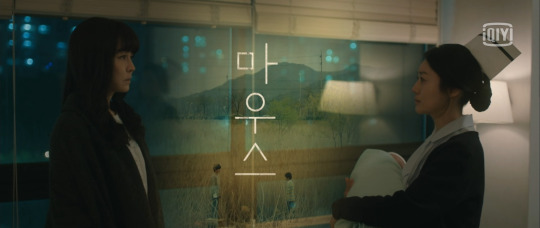
In the beginning, I wondered whether the main theme of this drama is about the concept of nature versus nurture.
It’s pretty straightforward. You have 2 kids born with a psychopath gene (don’t question the science here). 1 kid lives with a doting mother, but he grows up as the son of an infamous serial killer, Headhunter.
Whereas the other kid lives with an ‘evil’ stepfather who clearly favours his own children, with his mother tried to kill him once. All kids at the school keeps calling him a weirdo, because, well, he is a bit of an antisocial.
As you can see, both kids live in a controlled setup. Both grow up being perceived as the outcast. But the way their family treat them is different, so you can see if that kind of a difference plays a part in the outcome, i.e., whether or not they become psychopaths.
This is a clear set up by the writer for the theme of nature vs nurture.
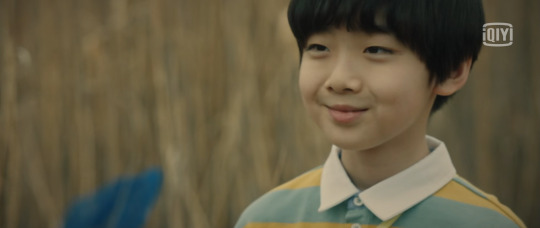

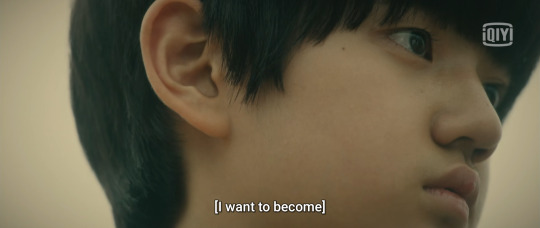


I’m not going to go into details of what happened throughout the entire drama because hoo boy there’s a lot to unpack in this drama. As what Mortred, the phantom assassin says:
“Don’t blink, or you’ll miss me.”
When the truth has been revealed, I keep asking myself if the whole fiasco would have happened had the experiment not been conducted by OZ, led by Choi Young Shin, the Presidential Chief Secretary, who wields great power and influence over governmental bodies.
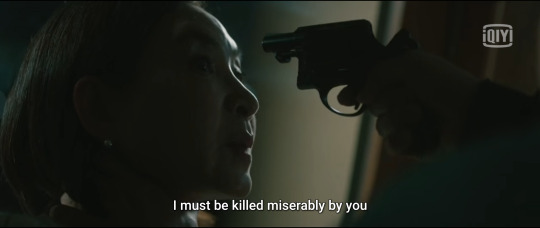


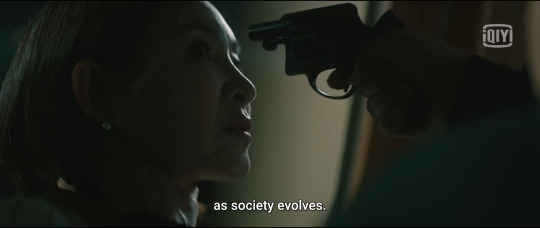


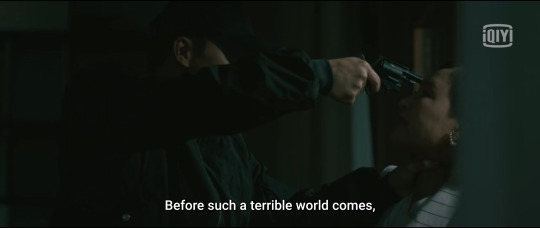
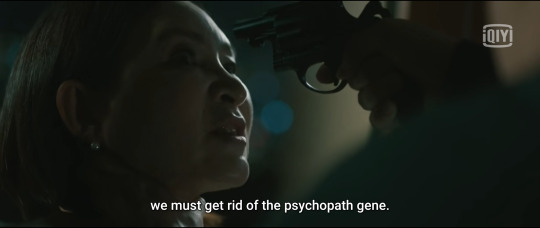


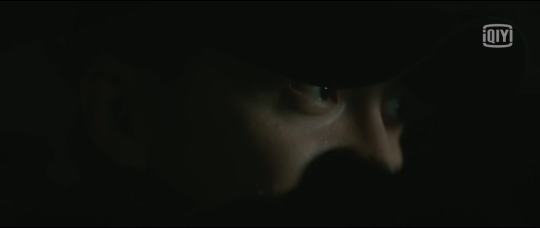
Sure, the question of whether or not the government should be allowed to enforce mandatory abortion on fetus that carry the psychopath gene sparks a heated debate. I am not even going to bother to spare my brain cells to the question.
But here we have Young Shin, who dreams of a utopia free of war and crime, and to achieve her dream, she believes that eliminating psychopaths is of utmost priority.
So we have the whole experiment being secretly funded and operated under her authority. The modus of operandi is simple. Observe the three kids born with psychopath gene (yes, there were three of them), get experts to analyse their behaviours, and present evidence that people born with psychopath gene are monsters who deserve to be eliminated from the moment they are in the womb.
However, the experiment faced some challenges along the way. First, Yo Han was ruled out from being a psychopath. Secondly, despite the various aggression that Jae Hoon/Ba Reum displayed as a kid, he never go as far as actually harming other people. Only Woo Hyung Chul (the third kid) showed positive result for the experiment.
Frustrated by this, OZ decided to throw a bait to Ba Reum by feeding him intel on the whereabout of Su Ho, the perpetrator who ‘accidentally’ killed his family when he was a kid. Sure enough, Ba Reum took the bait and tortured Su Ho in the same way his family members were killed.
...”fracture for fracture, eye for eye, tooth for tooth...”
From that moment onwards, Ba Reum started to go on a killing spree, before completing his grand show of serial killing, by choosing to judge and punish people who refused to commit the seven deadly sins.
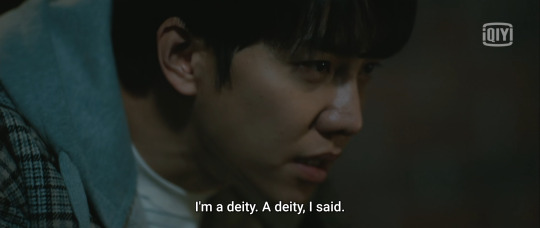
What bothers me is this, would Ba Reum have gone on a killing spree if he was not put in the environment he was set in? Would he have started killing people if he was not given the right stimulus?
His predator instinct was awaken after killing Su Ho. He blamed the deity for not answering his prayer as a kid for him to not become a monster. He was triggered to kill Su Ho, and he blamed the deity for letting him to become the monster he was becoming.
In a way, you can argue that Jae Hoon/Ba Reum was also a victim of the cruel experiment. We saw how as a kid, Jae Hoon resolved to live a fake life by wearing a mask of the kindest and the most righteous kid in the world. This was after acknowledging that he could not continue to demonstrate aggressive behaviour if he wants to live as a normal kid whose achievements, whose presence is celebrated by the people around him, just like the little annoying transfer student kid who took away his position as the first kid in the class (yes, it was Yo Han).
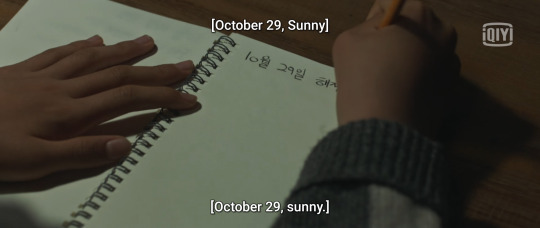
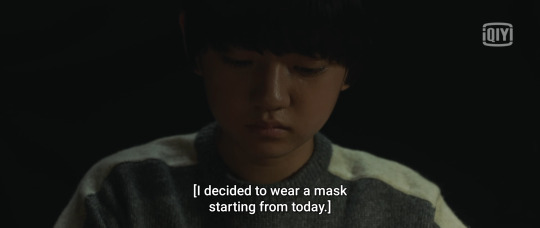
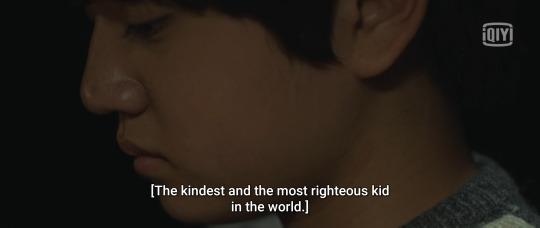
Deep in its core, when you finally untangle the twists of the red thread of fate intertwining between the lives of Jae Hoon and Yo Han, the story of Jung Jae Hoon/Ba Reum was about a kid who was given a side eye as a kid just because he was born different than the other kids. The kid desperately prayed to the deity to not become a monster, and when he believed his prayer was not answered, he decided to rebel against the deity by mocking deity punishment and the whole concept of the seven deadly sins.
Do I pity him? Yes. Do I wonder if his life would have been different had the OZ not orchestrated his life? Absolutely. Do I condone his killing innocent people whom he deemed as sinful just because they refused to commit the seven deadly sins? No.
I can understand his motive, and how the situations he was put in made him the monster he was. His entire life was basically a torture, a living hell.
But, after the entire ordeal, and when he finally accepted that the deity did answer his prayer, albeit much later than he had expected (and in the most unexpected way), he was finally able to shake free from the cruel experiment, feel deep remorse for his sin (which he was not capable of doing before), and rest in peace.
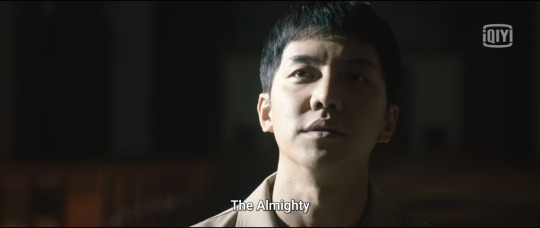
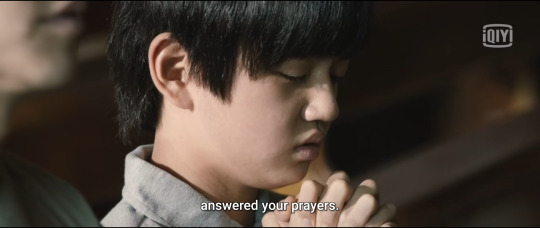



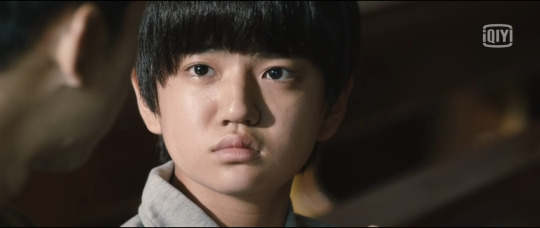
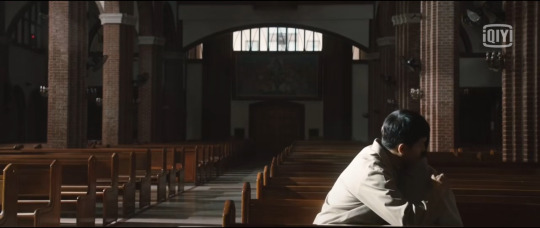
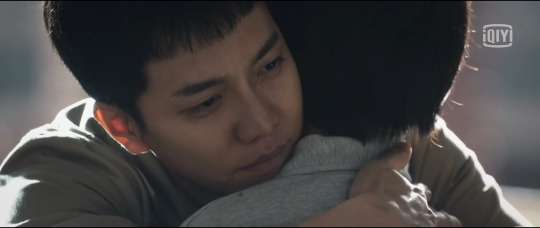
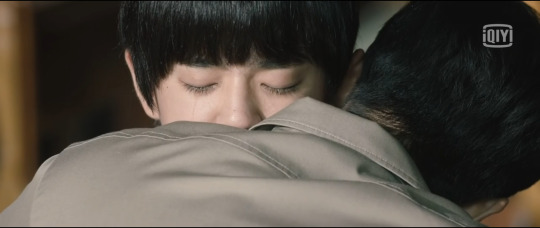

99 notes
·
View notes
Note
Would love to know your thoughts on the rutger bregman book when you finish it!!!
dearest merle! it took me months to answer this ask - something i'm ashamed of - but i finally got around to finishing the book today.
the below is a condensed version of the ten pages of notes i took while reading it, which are rather chaotic and repetitive at points - but in my defence, bregman repeated his own arguments too.
one of the main arguments that bregman makes is that "evil" or "immorality" - which we'll define as causing unnecessary harm - are rarely caused by the individual, but rather the society they live in. i agree - nothing exists in a vacuum. however, society, as a nebulous concept, isn't imposed on us by some imperceptible power - it is crafted by people. people in society have different levels of power, and the harm they can cause to others is directly proportional to said power - but be it on a micro or macro scale, our actions have an impact on others and while they are influenced by the society we live in, we must nonetheless strive to minimise the harm we cause - and few of us do.
bregman illustrates many of his arguments with heartwarming stories about people coming together in times of crisis - take, for example, natural disasters - and overcoming adversity, selflessly looking out for their neighbours. but crisis very often leads to the creation of divisions, an us vs them mentality, and a complete disregard for the safety of others. the current pandemic is a prime example - see the widening of class differences, the rise in racist hate crimes, and people refusing to take safety precautions because they are inconvenient to them.
another argument repeated quite often throughout the book is the fact that media cherry-picks the most sensationalistic and senseless acts of death and despair, because human suffering is simply more interesting that the mundane - people talking to friends, creating art, laughing and learning. again, i agree with him - many of the more tabloid-adjacent news outlets would have you believe that the everyday norm is dismembered heiresses being found on riverbeds and charming, precocious children being held for ransom in tiny basements. the news doesn't often focus on the mundane - but the mundane isn't just love and work and friendship and boredom and chores, it is also, for billions of people around the world, sexual violence, familial abuse, workplace and housing discrimination, etc. these things aren't sensationalistic either - they're frightfully common, frightfully boring, and thus, they're rarely reported on.
throughout his book, bregman mentions that when he told people what he was working on, they approached the idea that humans are good with a large dose of cynicism, simply because we are raised to believe humans are selfish (which isn't the case worldwide, not all cultures are individualistic). they pick the easier choice - accepting the image of the world and their fellow humans that they are presented with at face value. i'd argue that it is the tendency of humans to pick the easier choice, to obey, to avoid challenging their worldview that leads to - for a lack of better term - immorality (see definition in point 1).
often, when bregman presents his feel good stories about people cooperating in adversity, he also mentions troubling details that, again, show undue harm being done. one of the examples he used were six boys from tonga, aged 13 to 16, who were shipwrecked on an island, and instead of descending into a "lord of the flies" style madness, they built their small community on the basis of communication and cooperation, never resorting to violence, and acting mature beyond their years. after a year spent on the island, they were rescued - and promptly arrested, an event which was probably racially motivated. and the reason they were shipwrecked in the first place was attempting to flee their school, where, according to their reports, they were neglected.
bregman contrasted the example of the boys forming a peaceful society on a small island with the chaos that always ensues when adults in reality shows are put in similar situations. the contestants are pitted against each other by the show runners, who seek to frustrate them and make them lose control for the amusement of the audience. whenever contestants try to cooperate, form a mutually beneficial society for a short while - a radical idea - they are punished. "goodness" - i.e. harm reduction - and radical thought being punished just don't seem like particularly helpful examples for the "humans are inherently good" thesis
bregman seems to be a big fan of primitivism, constantly citing civilisation as a source of harm - a position i'm always sceptical about, because personally i love vaccines and dental care, but i know this is a knee-jerk reaction and bregman isn't plotting a return to a land without dentists. but what i do take ire at is the idea that humans are somehow "corrupt" versions of their natural selves and that our lives have grown too complicated, and only a return to "primitive" society can return us to the aforementioned natural selves.
tied to the previous point - his arguments remind me of the "noble savage"'... archetype? he seems to paint a picture of "primitive" indigenous people as role models for those "corrupted" by civilisation, who in turn must be saved by a return to their "purer" selves, instead of individuals with flaws and agency.
speaking on indigenous populations - bregman also invokes the inhabitants of the easter islands. for a long time, the world at large believed that a hundred years or so before colonization, the islanders effectively perpetrated a genocide, killing off a large proportion of their population - a claim which was later disproven. yay! humans can live in peaceful societies without committing genocide, and thus, are not inherently evil! disregarding the fact that european colonists later massacred a large part of the islands population, and sold most of the survivors into slavery?
i was very excited for one of the chapters, entitled "after auchschwitz". i was interested how bregman would reconcile his argument with the tragedies of the twentieth century - the holocaust, but also genocide, and to a lesser extent war in general.
(this chapter, i might add, was preceded by a quote by anne frank - you know the one, about the inherent goodness of people. i was hoping that bregman would comment on the fact that anne wrote the quote before she and her family were sent to a concentration camp)
so you can imagine my surprise when the chapter was not, in fact, about concentration camps or genocide. but rather about. unethical 70s sociological experiments.
no really! a chapter titled "after auchschwitz" was, in fact, primarily about the stanford prison experiment. an experiment that was, granted, inspired by concentration camps, but still. it's misleading to invoke "real", large scale violence, and focus instead on "simulated", small scale violence.
we all know that the stanford prison experiment was, as far as experiments go, rubbish to legendary degrees. it doesn't prove anything - but it does, perhaps, show that people under large psychological duress are capable of evil, even when they themselves are not "evil".
it is, i'd argue, the human tendency to obey authority and especially to conform to societies standards that poses the largest danger. disobedience is man's original virtue and whatnot.
and when he does briefly refer to concentration camps, bregman treats them like a very 1940s phenomenon, disregarding the fact that they have been around for much longer and still exist today.
in cases like that one experiment with electric shocks. you know the one. do not, perhaps, show an innate tendency to violence, but rather people succumbing to pressure. but history is full of unprovoked instances of violence, of pogroms and lynchings. there is usually an instigator, yes, but judging from reports, people in the right mindset don't need much persuading to butcher other people.
also re: electric shock experiment - those who thought they gave the assistant lethal shocks showed extreme guilt and some even cried but like... so what? what use is a conscience if it doesn't stop you from, to your knowledge, killing someone? are your feelings really more important than your actions?
he doesn't say this, but a lot of the arguments he presents do seem to boil down to "people aren't evil, they're just stupid!" which doesn't sound more encouraging, i'm afraid.
an alternative takeaway would be "people are good, unless they have power" - which isn't exactly a radical, revolutionary idea. most people have heard the maxim "power corrupts". but the thing is that almost everyone holds some amount power over others - the oppressed factory worker in a poor nation who works 12 hours a day for pittance might still execute power over his wife, who relies on him for money, and she in turn might hold power over her children, and so forth. and that power is often used to cause undue harm and exercise control.
he criticises machiavellianism, saying it doesn't reflect how society works, and one of his proofs is that his philosophies were espoused by bismarck, churchill, and stalin - hardly admirable figures in terms of (you guessed it!) causing harm. but i don't see how that discredits machiavelli? like all of the above were very succesful
and he keeps repeating the primitivism argument throughout the book which gets tiring. like i'm truly sorry you were born in the last 5% of human existence thus far when, in your opinion, humanity started going to the shits, but it's getting a bit tiring
he cites money and nations as concepts as harbingers of the current (negative) state of humanity, saying they're very recent concepts and have no basis in reality. they're artificial concepts, sure, but their effect is very much real, and while achieving a nation-less, money-less society is possible on a small scale, i think that at this point they are such large aspects of life that reigning them in seems impossible.
and invokes the noble savage again and again, showing himself in favour of tribal societies, depicting them as egalitarian - i'm sure many of them are, but many also have a strict hierarchy or like. practice fgm. once more he seems to treat tribal people as a monolith of goodness as opposed to... people.
he also cites prehistoric people, their egalitarianism and low rates of violence but. forgive me for my ignorance because i did not research this. how do people know. doesn't the definition of prehistory include a lack of records??
he also mentions that in small, tribal societies, conformism can be a good thing, as it makes people act for the communal good. this is another knee-jerk reaction of mine but i think of conformism as society's most significant vice, so this strikes very much against my beliefs
later on, he also says reproduction is another proof of humanities goodness. perhaps it's a controversial opinion, but i disagree. i find it hard to find reasons for reproduction that aren't egoistic. it's survival instinct, sure, but it's not an "inherently noble pursuit".
later yet, he brings up schools which grant large degrees of freedom to students and shows how they're good for developing their minds. this might be a me thing but i know from experience that when i'm granted freedom without structure, i do nothing - though perhaps that speaks ill of me, and not humanity.
there have, in fact, been many studies on schools like this being helpful to student development and i certainly won't argue with them - but let me nit-pick. bregman says that fewer students have adhd in these schools, as it is a condition caused by being locked inside a room all day which is not only offensive, but also just plain wrong
and also while showing how granting children freedom lets them develop (which i naturally agree with) he brings up that "dangerous playground" study. you know the one. this isn't a coherent argument, this is just my bias speaking , but as a child, i promise i had no desire to play with rusty nails in abandoned warehouses. i liked my boring playgrounds with wooden swings.
then there is a chapter on communism and how it could be a remedy to societies ailments. but bregman and i seem to operate on very different definitions of communism. he naturally starts with saying maoist china and stalinist russia and cambodia under pol pot weren't really communist which... sure, if you want to argue semantics, i'm all for it, but it's an old and essentially useless argument. if "real communism" has never been tried (as the author claims) - why?
and then we pass to perhaps the most bizarre fragment of the book. paraphrasing only slightly: "but why are we now so opposed to the word communism? when we pass each other salt at the dinner table, is that not communism? when we selflessly hold a door open for someone, is that not communism?" i.... no?? no it's not. that's not what communism is girl stop
he then also says facebook is actually communist in many ways since a lot of its value comes from photos people willingly share for free. i could not make this up if i tried.
i think that in most terms i agree with bregman on policy - direct democracy, school and prison systems, changes to the criminal justice system - and our reasoning is partially similar, but i don't think the information we both have access to proves that humans are inherently good.
and then come perhaps my least favourite arguments because i for one am a spiteful bitch but yes. it is time for christian ethics 101 and turning the other cheek.
he cites ghandi and mlk as examples of turning the other cheek working. i think ghandi went too far with his policy, what with saying "jews ought to have marched silently to their deaths or committed mass suicide to make nazis feel ashamed" and like. we do remember they killed mlk, right?
as an example of turning the other cheek, he cites humane prisons in norway, where prisoners are granted much larger freedoms than usual and are on equal footing with the guards, who aren't armed and act more as councillors. i don't really see how this is an example of turning the other cheek, though - the guards are not the victims of the inmates (it was a prison for violent offenders - many of them murderers). i agree with him that prisons, if they must exist, should treat inmates humanely and with respect, but i don't see how this relates to the turning of the cheek. statistically, many of these men probably murdered their mates in a drunken dispute, or killed their wives - and i don't think turning the other cheek would have helped their victims.
he also cites south africa in the sixties as an example of turning the other cheek, when anti-apartheid activists would meet up with pro-apartheid activists and talk - this included nelson mandela who had frequent talks with the leader of a white supremacist paramilitary organisation of afrikaners staunchly opposed to black south africans getting the vote. and it worked - the man, whose aim was starting a civil war, relented. but racism isn't a simple matter that can simply be solved by talking. and it is often a pragmatic policy which i don't disparage, but turning the other cheek and having to treat someone who refuses to acknowledge your humanity with an exorbitantly disproportionate amount of respect is inherently degrading.
skipping ahead, in the epilogue bregman lists ten rules he tries to live by, and one of them is, i shit you not, "don't punch nazis". and punching nazis doesn't stop them from being nazis, but turning the other cheek gets people killed
the rise of fascism is perhaps one the largest threats we are dealing with and fascists are not just isolated and misinformed (and in this day and age, ignorance is a choice). they are dangerous.
this is by no means an essay or an exhaustive list, just a slightly chaotic and much overdue collection of opinions which i don't know how to put under a read more. take care <3
23 notes
·
View notes
Note
For a character who was the catalyst for all the events of the novel WRH got way too little attention and show time in the novel heck we don't even get a face off between him and the protagonists. To me if JGS was a pig in a golden pigsty, JGY a sneaky fox, and XY a rabid dog, then WRH was a mighty dragon. He had all the makings of an amazing villain but that potential was wasted and imo that is one of mdzs' greatest flaws
Mighty dragon Wen RuoHan is so true, Anon!
The spoiled pig in the golden pigsty came out on top after the Sunshot Campaign. He had all the money, a beautiful family, and an intact sect, and yet he wanted all the power left in Wen RuoHan’s wake--as if the world hadn’t fought for three years to get rid of the original.
The treacherous snake who cuddled up to others to steal their warmth and yet bit to kill at the first sign of movement. He acted like that warmth was his due and he had no choice but to bite. Surely the actions of others would either do him harm or leave him cold! He tricked Wen RuoHan into believing their scales meant they were similar, but he only ever dreamed of being a pig in that golden pigsty. (There is a connotation of mischief and charm with “sneaky fox” that does not fit Jin GuangYao in my mind lol)
The rabid dog who was used to being beaten and yet would accept a warm bed and a dish of food from any kind hand. He won’t bite the hand that feeds him but he will absolutely maul anyone who threatens that warm bed and new home he found--or anyone who looks like an easy target for some fun and games.
And then there is the mighty dragon!
I've been trying to respond to this ask for a few days because I agree and yet I also kind of disagree on that last point. I find it hard to say Wen RuoHan’s potential was wasted because it’s his potential to do harm that kept the Sunshot Campaign alive but also his lesser-discussed potential to be influenced towards doing good that could have prevented a lot of grief. Although he didn’t get a lot of page time, his importance to the story is practically on par with Wei WuXian himself and he continues to exist as a specter of evil even after he is dead.
This quote comes to mind during empathy:
On Koi Tower, people came and went. Before Nie MingJue's high viewpoint, the crowd parted again and again, with both sides nodding at him in respect, calling him "ChiFeng-Zun." Wei WuXian thought, Such a show of extravagance is going to reach even the heavens. All these people both fear and respect Nie MingJue. There's quite a few people who fear me, though not a lot who respect me. (Ch. 49 ERS)
One of the major conflicts in MDZS is based on one question: who gets to be the next Wen RuoHan after the Sunshot Campaign? And the sane answer is that it should be nobody. The Sects are independent entities who should take care of themselves and work in cooperation without controlling each other. The Wen Sect was never actually in charge of the other sects so it’s quite twisted for the Chief Cultivator position to be created in the wake of Wen RuoHan’s death. Wen RuoHan is still a catalyst for events even after he is murdered!
More so, when people were saying they hoped Wen Qing would one day take over as Sect Leader Wen because she had a normal way of doing things, it’s because Wen RuoHan calling the former Sect Leader Nie over to passive-aggressively slap his saber a few times and tell him it is a good saber is just bizarre. Of course Wen Qing’s ways of doing things are normal!
Compare Wen Qing being angry:
"If you really are grateful then put in some effort! What [the] hell kind of medicine did you just make? Brew it again!" (Ch. 60 ERS)
To Wen RuoHan:
And, thus, Wen RuoHan wasn't pleased anymore...
Wen RuoHan laughed after he heard. “Are you sure about that? Well, I want to see.” (Ch. 49, ERS)
But back to the scene at Koi Tower, it’s funny that the one closest to becoming Wen RuoHan is quite possibly Nie MingJue, the one now respected and feared, the one who fought the most against Jin GuangShan creating the Chief Cultivator seat. Why did Jin GuangShan create the Chief Cultivator seat? Because no one was ever going to respect him or to listen to him, much less respect him and fear his power to let him do whatever he pleased. But even then, Nie MingJue had to travel to Koi Tower to point Baxia while he made his demands. Jin GuangShan and Jin GuangYao had to murder and lie and scheme to get what they wanted. Wei WuXian had to figuratively set himself on fire. Wen RuoHan simply had to call his target of his ire over and he came, and then he let fate run its course.
Wei WuXian, Nie MingJue, Jin GuangShan, Jin GuangYao--none of them ever held even a fraction of the power wielded by Wen RuoHan. A power shown when Lan XiChen and a bunch of other juniors looked at the waterborne abyss and didn’t even dare to speak the name of the Qishan Wen aloud. Our spoiled pig and even rabid dog look to demonic cultivation to gain that fear element since they lack the wow factors of a powerful cultivator. Wei WuXian and Nie MingJue end up dead because a spoiled pig and a treacherous snake want their golden pigsty to go uncontested.
So it’s hard to speak of Wen RuoHan not meeting his potential when all the Sects left in his wake never achieve a fraction of what Wen RuoHan had. And even then, at no point in the story does Wen RuoHan ever wake up in the morning and pick murder, although the same cannot be said for the likes of Wen Chao, Jin GuangYao, Xue Yang, and even Wei WuXian.
So what I’m getting at here is that despite Wen RuoHan’s lack of appearances, we learn a lot about him through other characters trying to either work for or against him or emulate him. And he does face off against one of our protagonists: Nie MingJue! Although that we don’t get to see their first fight in Yangquan when Nie MingJue was fresh is truly frustrating!
Because even though we do get a Wen RuoHan face-off with a protagonist, it’s his assassination that gets all the attention--and it’s because Nie MingJue avoids talking about traumatic experiences and Jin GuangYao already got what he wanted from that event. The mural at Koi Tower immortalizing the assassination of Wen RuoHan is a snapshot of the heroic Jin GuangYao taking out the Big Bad in a glorious moment. It was also, however, a huge red flag that Jin GuangYao is willing to murder someone who gave him respect, protection, and empowerment so long as he could use their blood to pave his road ahead.
I do have to wonder on the degree of Wen RuoHan’s villainy when he didn’t even bother to take the life of his son’s killer and he passed on the opportunity to torture him, too. But no one in the story talks about Wen RuoHan as a person. They talk about Sect Leader Wen as a symbol, and he becomes a symbol of evil.
Everyone becomes so focused on Wen RuoHan as the Big Bad that for all the crimes the spoiled pig and the treacherous snake perpetrate, the majority of the cultivation world responds with, “If this [evil act and/or abuse of power] was done by the Wen Sect, we would be really concerned. Since the people doing it are not-Wens, it can’t be evil and thus we can allow it to happen.”
And thus the Jin get away with doing a lot of evil. Lan XiChen can look at Jin GuangYao and say, “he has his reasons,” because Lan XiChen has been victimized by the Wens and Jin GuangYao murdered Wen RuoHan so surely there is a divide there between good and evil, right and wrong. This is a very convenient way for letting the Jin get away with doing a lot of bad things! Wei WuXian rescuing the Wen Remants, meanwhile, places him conveniently within the Wen-Sect-Is-Bad camp, and we all know how that goes.
So I do agree that Wen RuoHan had all the potential to become a great villain, not just because he has all the power and followers that let him do whatever he wanted but also because the cultivation world sold us the story of him being a monstrous villain who loved blood and torture. But when the other sects create an uprising against the Wen Sect and label it the Sunshot Campaign, not once does Wen RuoHan try to subdue them. Not once does Wen RuoHan ever turn to violence and punishment or slaughter. He had the potential to be a great villain and stomp on all of them! But he doesn’t.
And I don’t think that’s because his potential went unmet. That’s just his character. He is an antagonist with the potential to become a great villain and yet he stays his hand. His power instead draws villains to him like flies to honey. There’s a reason people wear their time spent as a guest cultivator of the Wen Sect with pride! Wen RuoHan is good to his Sect. The perks and benefits cannot be matched.
But it’s not only the dregs of society that come to the Wen Sect and abuse its power. Wen RuoHan has three morally distinct people closest to him that reveal that he has the potential to be well-rounded:
Wen Qing: speaks her mind, a doctor, refuses to kill, intelligent, talented in the liberal arts, accompanies Wen RuoHan to discussion conferences, pays her debts, won’t die for the main branch which is just an alternative of her don’t-kill policy which is don’t-die-for-stupid-shit-customs policy
Wen ZhuLiu: loyal to a fault, dedicated, obedient, was told to protect Wen Chao and does his job incredibly well because this is how he pays his debt to Wen RuoHan for saving him, doesn’t do anything unnecessary, doesn’t speak unnecessary words
Meng Yao: loyal only to himself at the end of the day, prideful, hardworking, scheming, ambitious, supports petty revenge, pro-murder, stabs as a warning, will sell you to satan for one corn chip, does not acknowledge owing debts to anyone but has the receipts on what others owe him
All three characters are respected for their talents and effectively do as Wen RuoHan tells them. Wen Qing leaves for the Yiling Supervisory Office and takes her rational mind with her. Wen ZhuLiu leaves to protect Wen Chao and leaves Wen RuoHan undefended. Meng Yao makes himself useful in Nightless City and thus stays closest to Wen RuoHan’s side. So who is the one speaking in Wen RuoHan’s ear the most? The one saying murder is OK so take revenge.
And even then Wen RuoHan still doesn’t take his revenge, I’m just saying.
But what I’m trying to get at on this scenic route is that Wen RuoHan is left with all this wonderful potential for a reason. Not only do we see his potential but other characters see it, too. His potential is turned into someone else’s profit. Nie MingJue claims that Wen Qing should have spoken up more, which implies Wen RuoHan has the potential for change or even to do good. The majority, however, persist on not just his potential but his status as a great evil. The characters in the story make Wen RuoHan into the penultimate evil by a post-war consensuses. With that, the ceiling is pushed so high that other evils are able to bloom in the glass house they’ve made.
“Whatever we do can never be as bad as what Wen RuoHan and the Wen Sect did,” the cultivation world says as they let a mass murderer run rampant, as people are used for demonic cultivation test subjects, as prisoners of war are beaten and killed, as a dozen women are raped and murdered for petty revenge, as brother betrays brother, as a father murders his innocent son for political gain, as juniors are kidnapped and used as bait...
So absolutely Wen RuoHan was a catalyst for many events because people either wanted to be him, have him in their fighting corner, or kill him. He perpetuated events by wanting to correct the cultivation world as he saw fit by indoctrinating juniors in the Wen Sect ways or by setting up supervisory offices to prevent rebellious behavior. He delegated these tasks which put people in positions of power that they only saw fit to abuse.
But Wen RuoHan’s potential to be a great villain competes with his inherent lack of interest in causing death and destruction. I think that makes him not just a compelling antagonist compared to all the others but a fascinating character in general. Considering MDZS gets praised for all its morally grey characters, I don’t think Wen RuoHan should be left out of the conversation.
#this is so long and it probably doesn't make any sense lol#but since anon sent the ask again i shall give you this~!#how does one talk about wrh idk idk idk!#i just think he's neat#wrh is responsible for everything that happened while he was sect leader#just stating that here in case it didn't come across well enough in the post#but i do think wrh delegated a lot and he trusted a lot#and the fact his sect had many incompetent ppl and meng yao#means there is a disconnect between what wrh wanted and implementation#wen ruohan#asked from above#anon#mdzs thoughts
34 notes
·
View notes
Text
Literature between Political Correctness and Cancel Culture
(Analyzed through Walter Siti, Natalie Wynn and Rick DuFer.)
(buckle up, because if you're gonna read this, it's gonna be long)
«Today is much easier to mistake an author’s personal stances with the content of their works, and then make the author pay for the work’s sins.
Today I look around and I have the sensation that literature is no longer taken seriously: that the way to interpret literature the way I knew it, depth-focused, focused on the power of words to reveal truths otherwise concealed to their own author, is disappearing — substituted by a conception of literature that has to serve a list of good causes.
When some writers of the “neo-effort” (Siti’s neologism) insist on the fact that words are decisive, and that it’d be urgent to change the words in order to change reality, I’m suddenly reminded of those old Marxist authors: they explained that the structure, which is what lays under society, determines what lays upon it, that is words and ideology. Thus, changing the name of something doesn’t change the thing the word stands for at all.
Literature has been considered throughout time the most indicated form to make resurface the part of ourselves — often, the least pleasant — that we’ve exiled in the shadows of our subconscious: a process that often happens without the author’s acknowledgement of it.
The authors of the neo-effort believe they have the duty to spread their ideas to the largest possible number of people and that, in order to do so, they have to simplify as much as they can what they write, sacrificing on the altar of efficiency the style, considered useless. The aim is to do good, namely gain an effect, what does it matter if it’s good or bad literature? Literature used to “take root”, to influence; put at the service of pre-established ideas, and not to venture into the discovery of something we don’t know yet. This way, it gains an ancillary role. And it’s a humiliation of literature — which can truly be useful, instead, only then it hurts.
Sartre’s “Nausea” doesn’t align with his political stances. For Sartre, the effort was the individual reflection of a society in perennial revolution, substantially a school of liberty, whilst for neo-effort the role of literature is to reassure.
Their attitude, their rejection of style, their low consideration of literature, tends to isolate the good writers out there, marginalizing them in a niche that looks like a convention of obsessed aesthetes in the public’s eyes.
I see it in the writing courses I teach: more and more young people whose main interest isn’t to write to learn something about themselves or society, but it’s to write to gain the title of writer and place themselves on the market, detecting the most profitable sector at the moment, which might be fantasy, crime, or effort-centred writing: it doesn’t matter, what matters is for it to be trending and to be reassuring to the reader, in a more and more therapeutic conception of writing.
Literature isn’t immediately therapeutic, this is the difference. When “The Sorrows of Young Werther” was published, copies of this book were burnt, because of the suicides it inspired. Today we read it at school. How much time has passed? I don’t refuse knowledge’s benefit, I refuse that knowledge can benefit instantly, painlessly. When I went to a psychoanalyst to face my neurosis, the psychoanalyst made me suffer for months, and only after I took benefit from it. What would have happened if they had welcomed me with a pat on the back and said “Don’t worry, stop thinking and go help African children”. Probably I would have had an immediate benefit, but all my neurosis would have stayed there, intact.
The Literature I talked to you about is depth-centred, and literature hasn’t always existed: thus it can disappear, sink for many years. Who said that it’ll survive, despite everything?
In Pasolini’s trial he was acquitted because Ungaretti was called to testify. He wrote a letter where he wrote that the formal value of Pasolini’s work turned into literature even those scenes that the prosecution deemed obscene. Law couldn’t do anything but recognize the critical judgement and welcome it. Web’s tribunal, today, would have burned Pasolini at the stake, and Ungaretti with him.» (via Walter Siti’s interview with the Huffingtonpost)
In other words, we can summarize Siti’s view with the sentence «novels aren’t the cure to the world’s evils.» They aren’t, because they don’t have the power to be, and more so they aren’t even supposed to be: writing is a form of art, and art has primarily an end in itself. Literature isn’t a political marketplace, even if it can be used to be — it’s not a crime to turn it into one, but by doing so, one loses Literature’s nature. By doing so, the harm could be mistake literature’s primary aim (that is being a form of art, that is style, that is the pursuit of the truth) with what they turned literature into: a marketplace to defend the author’s ideology.
Siti’s powerful image of the Web’s tribunal, the Web’s court finds an echo in Natalie Wynn video Canceling: in a sense, what Siti calls “neo-effort writers” fall under the same line of thoughts of Cancel Culture perpetrators.
«Like the guillotine, [cancelling] can become a sadistic entertainment spectacle.
Now there's a version of this conversation that's already been had to death, and it goes like this: On the one side are a bunch of male comedians who constantly bitch about how Cancel Culture is out of control, you can't joke about anything anymore without these Millennial jackals trying to get you in trouble.
And the other side is mostly progressive think-piece authors who argue that there's no such thing as cancel culture, it's just that powerful people are finally being held accountable for their actions and they can't fucking handle it, so they go around bitching about cancel culture.
Now unfortunately, neither of those viewpoints is quite as correct as some people might hope.
What Cancel Culture does, [is to] take one story and transform it into a significantly different story.
Presumption of Guilt
There's a traditional understanding of justice according to which, before you condemn or punish a person, you hear the accuser's side of the story and the accused's side of the story. You allow both sides to present evidence and only after everyone involved has had a chance to make their case do you pass judgment and punish the convict.
But cancelling does not abide by the law. Cancelling is a form of vigilante mob justice. And a lot of times, an accusation is proof enough.
Abstraction
Abstraction replaces the specific, concrete details of a claim with a more generic statement.
Essentialism
Essentialism is when we go from criticizing a person's actions to criticizing the person themselves. We're not just saying they did bad things. We’re saying they’re a bad person.
Pseudo-Moralism or Pseudo-Intellectualism
Moralism or intellectualism provide a phony pretext for the call-out. You can pretend you just want an apology; you can pretend you're just a “concerned citizen” who wants the person to improve. You can pretend you're simply offering up criticism, when what you're really doing is attacking a person's career and reputation out of spite, envy, revenge.
No Forgiveness
Cancelers will often dismiss an apology as insincere, no matter how convincingly written or delivered. And of course, an insincere apology is further proof of what a Machiavellian psychopath you really are.
Now sometimes, a good apology will calm things down for a while. But the next time there's a scandal, the original accusation will be raised again as if you never apologized.
The Transitive Property of Cancellation
Cancellation is infectious. If you associate with a cancelled person, the cancellation rubs off. It's like gonorrhoea, except doxycycline won't save you this time sweetie.» (via Natalie Wynn's Canceling video transcript)
Natalie Wynn describes and formalizes the phenomenon of Cancel Culture in those steps:
I only listen to the presumed victim,
I abstract the context to a vague idea,
I equate the action to the actor’s very essence (as if such thing even existed),
I say I’m acting in favour of morals or truth,
I accuse every person the presumed abuser ever came in contact with to be an abuser as well,
and I either reject every form of apology at the moment, or bring up the issue as if no apology was ever made at their first misstep.
Now, in this post I’m not trying to perpetrate any concept of charity, not only because it’s an attitude that takes a lot of work to inherit, but also because the negative aspects that might bring one to be a neo-effort writer or a Cancel Culture perpetrator are part of the very human nature (or, very stupidly, they wouldn’t be humans.)
The self-evidence rises here: those negative parts of human nature can be channelled everywhere, and literature or any other form of art is the healthiest way to do so: you’re not going to get rid of your anger, or your sadness — the best thing you can do is learn to control it and suppress it, but how is it going to work in the long run? It’s going to act past your good judgement, or even cloud your good judgement, clouding it into thinking you’re defending some pseudo-moralism or pseudo-intellectualism, when what you’ll be doing is just venting on someone else.
This is one way to see it: when one forgets what proper thinking is and falls into those quick and gut-feeling “thoughts”. Or one could even take advantage of this Cancel Culture, of this ground of poor thinking to instrumentalize this lack of critical judgement to attack someone else.
On instrumentalization and its dangers, Rick DuFer says:
«Political correctness works when its aim is to protect the weak from abusers, but when it favours every little susceptible sensitivity it turns dangerous.» (via Rick DuFer’s podcast DailyCogito)
Rick DuFer talks about a shared responsibility that happens during offence: shared between the offender and the offended. The problem with offence, as opposed to harm, is that it isn’t quantifiable, so the offender is guilty in regard to their intentions, and the offended is guilty in regard to the instrumentalization they can enact with the situation.
And again we find “instrumentalization”: if one destroys my property, I can quantify the damage, but if one insults me, how can I quantify how offended I truly am? This is when I can twist one person’s words and turn them into an offender, this is when sensitivity becomes a mask and no longer a virtue (or, for the toxic masculinity’s thought, a vice.)
Now, to wrap things up:
These people take the (s)word of this school of thought (which some other dichotomists may, generalizing it, call it “Strong Thought” or “Unique Thought”), perhaps without even knowing there’s an alternative, while there are multiple, actually: as many as the human beings right now populating Earth.
They may do it out of a dualistic and very childish view of society — divided into good and bad people. And if that’s your view of life, you’re not gonna want to be associated with who others deem as bad, following a gut feeling and nothing more. (And I say “gut feeling” to avoid saying “very poor thinking”, because that’s what absolutization, essentialism, and the rest is.)
Your thoughts aren’t really yours, and you become a vessel for something that belongs to someone else, someone who crafted those thoughts in a very different context, or with instrumentalization in mind. You don’t want to risk criticizing those thoughts because you don’t want to be isolated, or because you’re a sane person who deems it important to act rightfully (even if you’re letting others tell you what “right” is.)
And for how problematic moral relativism is, it surely is better than any form of absolutization: better than rejecting your status as “sapiens” and stopping thinking altogether, passively accepting what others taught you to be right and wrong, maybe even out of fear, or a stupid rush for glory and sympathy.
So I wouldn’t call this moral relativism, strictly, but rather moral subjectivism, or context-centred morality. A morality in which people still have a brain to separate a piece of work from an author’s ideology (against essentialism) and to still take into account the context in which an action was performed (against abstraction). A morality in which “good” and “wrong” aren’t seen in black and whites, but rather into lighter and darker greys; a morality which systematic use can slowly dress into the habit of charity towards one another, into kind teaching rather than cruel instrumentalization.
And is it really utopistic, is it really unfeasible, if we’re not falsely annihilating the suffering and the negative parts of the Human Experience?
This whole discourse could be turned into a political marketplace of rights and lefts, of conservatives and progressivists — but my aim here is much smaller (or bigger, if one is a humanist): to make the reader question their critical thinking, and just that.
(We love some self-doubt.)
I believe moral acts aren’t supposed to be a badge to share on one’s vest — to renew your status as “approachable person” (as if saying “don’t worry, you can talk to me, you’re not going to be deemed as bad for it”) or to be praised for. Moral acts are the only acts that raise humans from other species, the acts where the “sapiens” shows its evolution, the acts where our negative aspects aren’t hidden but channelled into arts, without the fear that someone might call us bad for it. (Immoral, even, whilst acting in the most moral way possible, exorcising those negative parts of us in the least harmful way possible.)
So, at the end of this unnecessary rant, my question is: is it better to be a minion in a culture where you have to watch your mouth, as if it wasn’t yours, or to be a person who’s engaged in researching how right and wrong truly manifest?
#the first and last sources are in italian#i did my best translating them#rant#philosophy#literature#cancel culture#cancelled#politically correct#controversial#opinion#thoughts#very open to discuss civilly
14 notes
·
View notes
Note
Hi! I love ur blog, especially ur Snk Metas and Ereri metas. What are your thoughts on the whole “Eren has always been like this” (always been evil or capable of great evils like genocide) that a lot of people seem to agree on? I’ve always had a hard time believing in that idea because we’ve been shown multiple times that Eren is capable of sympathy and empathy, so to say he’s ALWAYS been like this is wrong.
Hi! Thank you!!
Looking through my snk 121 tag I found that I have already received similar questions, so I’m gonna link one here if you want the short version of it. Even if it was something I wrote up right after the chapter was out, it’s not like my opinion has changed much... more like, my faith in Isayama writing a decent conclusion and explanation in regards to Eren has plummeted in the past year and a half.
But anyway, now we have some new information pertaining Eren, so I feel like I can add more on this moment and my take on it in light of such new perspective.
Let me preface this with: Eren hates what he’s doing, is despising every second, was scared of his future visions, often paralyzed, desperate to find a better solution than this, because he knows - let me repeat it - HE KNOWS this is horrifying. We had hints throughtout the story, but many have ignored them. For me, Eren going through grief and apologizing for something he hadn’t even done yet in chapters 131 was no shocker at all, but I guess some people may have actually been surprised, I don’t know. It was right there since the Marley arc and his breakdown over Sasha, but many have completely misinterpreted that scene, denying it was desperation that he was feeling, so it was nice to finally have confirmation. Kinda.


However, you know, Isayama doesn’t seem to have picked a side on his characterization of Eren. Or maybe there is still something that’s concealed, because everything we have seen, isn’t evething that has happened, and it doesn’t explain yet some things about Eren and, relevant to this post, why Eren has decided to give up and give in to his future self’s memories of destruction. I’m sorry, but Eren believing “there is no other way, other than killing the whole world’s population, because the future cannot be changed” due to some memories is not gonna cut it, especially because we haven’t seen him fight too hard against it. In my opinion, at least. Or maybe he did, but we haven’t been shown.
The most hopeful part of my heart wishes he is already trying to change things, in a very roundabout and secret way, but the tired and logical part is done hoping. After all, Eren is alternating between being hellbent on going through with rumbling the world, and being absolutely horrified by it. I’ve been getting whiplash every month for a couple of years now.
As for your actual question, and that line during the Paths Time Travel...

Let’s start from here, shall we? That whole conversation with Zeke in Paths was to Zeke what chapter 112 was to Mikasa and Armin, imo. Chapter 121, huh, same numbers...but anyways. I think I have already wrote it somewhere, but I believe Eren lied, and purposely hurt Zeke. To make him, and Mikasa and Armin, realize something and act accordingly, maybe against Eren himself.
In Mikasa’s case, the realization was gradual since then, because Eren’s lies kickstarted it immediately. In Armin’s case, I think we still haven’t seen the full potential of it, though it may come next chapter - and I mean the “You were influenced by Bertolt, an enemy” angle. I am surprised Armin hasn’t followed this reasoning in regards to Eren, who has three titans within him, none of them particularly allied with Paradis. We left Armin seeing Bertolt, who is, in turn, watching him. I wonder if a conversation won’t happen right off the bat in chapter 136.
Anyhow, Eren, in chapter 112, also very much hit Armin and Mikasa where it hurt them the most - which is the same thing he did to Zeke here, bringing up his hate for Grisha and how it was the only think really fuelling him, and went through all the effort of making him reconcile with Grisha. Mmm, sus. Am I the only one feeling it’s sus??? I really have to wonder if he doesn’t kind of want/need Zeke to stop him, just like I believe he did with Armin and Mikasa. After all, there was no need to antagonize them and make them have reasons to stop caring for him, if he didn’t want to be stopped.
So, if it wasn’t already clear, Eren is a big liar, and he’s good at it if you don’t know him (and Zeke, Armin, and Mikasa have proven they don’t know or understand him very well at times). His acting skills have been shown all the way back in the cabin scene when he was 8 years old and tricked those traffickers.

There is another layer to these lies that I’d like to touch upon, though.
The line you were inquiring about feels exactly like his “I am free” in chapter 112. He sounds so sure, but it is a freaking lie.
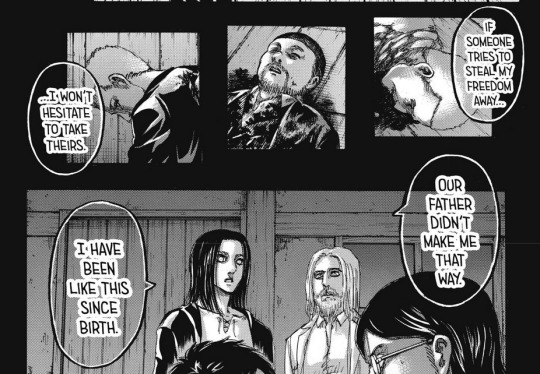
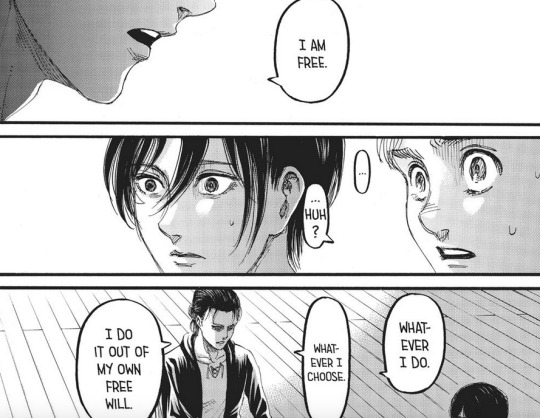
See how both Armin and Mikasa are confused by such a bold, out-of-the-blue statement, the same way Zeke asks Eren “Since birth?” because, like, what is that all even about?
Eren has been feeling trapped in his own future memories to the point that his freedom of choice even existing anymore has become a big question mark. There is no freedom in following the path you were shown.


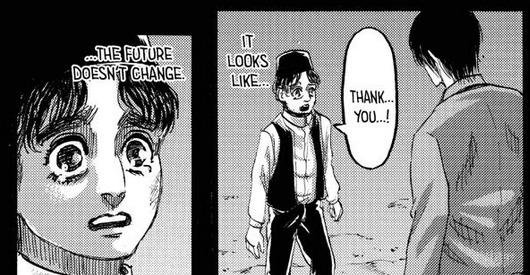
Eren’s urge to save someone from “having their freedom solen” by “physically assaulting the perpetrators first” has never, ever meant that he was willing to or okay with sacrificing innocents. Quite the opposite, in fact. There have been whole arcs about that. About Eren freaking out over people dying for him, refusing to sacrifice friends for the bigger picture, grieving for or sympathizing with innocents losing their lives or having them destroyed by some bigger threat. That has not changed.
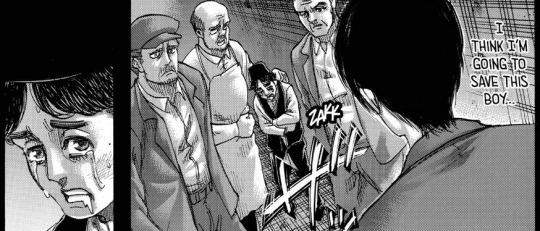
So the big question remains: Why?
With these outrageous and confident statements about himself, I don’t think Eren is merely lying to his interlocutor to change their perception of him. I think he is lying to himself as well in the meantime. It looks like it did the trick, or not - based on how you want to interpret it. He really has been dissociating hard during his rampage.
But it all depends on what Isayama's angle is with Eren. In 112 Eren seemed to believe his “I am free” statement because he had an instant reaction to Armin challenging it. At the same time, now that we also have chapter 130-131 to enrich our reading, there is no way Eren felt free into the choices he made after hearing Willy’s declaration of war. He saw a terrifying future, he hoped against hope that it would change, but felt powerless and gutted and desperate that all pointed to such a future being unchangeable. So I do wonder if maybe he didn’t end up lying to himself - subconsciously or not - that he is free... and that he is always been this way - a cold-blooded murderer who did it all for justice.
Zoom in on Eren forlornly watching himself as a kid show pure kindess to a girl who just went through the most traumatizing experience in her life.
For the matter, I don’t believe Eren “has always been this way”. I actually don’t believe he’s ever been that way. I don’t know why many(?) people just accept whatever Eren says at face value, ignoring all context surronding it.
As I posted very recently, it doesn’t make sense for Eren to go from one extreme to the other without a better excuse, or explanation, or a more believable writing of it...or a plot twist that I guess I will wait for for another 4 months:
Eren came to realize that outside the walls people are just...well, people. There are good ones everywhere, people who suffered just like him, people who deserve better, certainly don’t deserve to be caught up in the Rumbling, people who have lives, children, moms, loved ones. This is highlighted again in chapter 131, because maybe, when Eren brought it up in the basement with Falco and Reiner, people didn’t think he was being genuine. So Isayama shows us again that Eren truly believed that.


And yet, the chapter before, Eren put those very same people on the same level of Titans when he used to think Titans were scum, a nightmare sent to eat them alive, because he addressed them with “匹”, a derogatory counter when applied to people, because it is usually used for small animals.

The parallel to how he used to feel towards Titans is smacked in our faces, because in Japanese, it’s the same exact line. He now feels that way about people.
...What?
It doesn’t make sense, right?
Because really, the same way Eren’s first impulse in Marley was to save Ramzi when he was being beaten up (and threatened with a worse fate than some bruises), the same way Eren helped him regardless and again went against 3 full-grown men, it’s the same way Eren rushed to Mikasa’s rescue when he didn’t even know her... or the same way he pushed himself into a Titan’s mouth just to save Armin. it doesn’t come from a sentiment of “I need to punish these monsters because they are threatening me”. It comes from a natural, intrinsic need to help and save others. It is deeply saddening that at the end of this journey, with Ramzi, he just feels like this natural predisposition of his is just a fake and turns him into a hypocrite.

So for Eren to say he has always been that way while looking at his 8 years old self stabbing a human trafficker in the chest to save a little girl to try and explain why he’s killing innocent people who happens to be living alongside “the bad guys” is a false equivalence. Either it’s a lie Eren tells himself and to Zeke to make both of them believe this is what Eren is, and has always been, and there is nothing they could do to prevent it - in a sort of twisted liberation from guilt because “if I was always like this, then you and I both shouldn’t have expected anything different”...
...or it’s Isayama’s failed attempt at presenting a theoretical concept he liked and talked about in interviews, suddenly turning Eren into a poster boy for it and canceling previous sides of Eren’s complexity as a character. I would like to believe Isayama hasn’t lost his magic touch this badly, but every day I’m less sure of it.
My opinion, for what is worth, is that that line you quoted is something he said to trick Zeke into detaching himself from Eren and going against him - breaking the bonds of love all around him has been a very deliberate choice Eren has made post time-skip - and at the same time it’s something Eren is trying to believe himself, in a desperate attempt at explaining to his own conscience that he was destined to bring such destruction, that he was always capable of it, and that there is a sort of justice in it where there isn’t. And he knows, deep down. That’s why he dissociates in the end.
In a very twisted, self-deprecating way, Eren is a liar to everyone, himself included. He has become an unreliable narrator about himself. Eren has completely shut down because he cannot stand what he is doing.
And I would very much like to know why he gave up on trying to find a different solution, if that’s what it is that happened, and why he sounds like a different person every other scene he appears in, in the next 4 months.
32 notes
·
View notes
Text
My Demons
Spoilers below for Persona 5, told from Goro Akechi’s POV directed at Ren/Joker, written based off the lyrics of “My Demons” by Starset (the lyrics themselves are colored red). Starset is definitely one of my favorite bands of all time and after the sad-fest that was Liar, my “Goro Akechi isn’t dead” mindset had to write a sequel. So here it is in the beautiful, glorious mess that it is meant to be because...well, I’ll explain it at the end.
Starts on December 16th with each break being a time skip to the next day.
“Mayday! Mayday! Abandon ship!”
I barely repress a maniacal chuckle as shadows and cognitions alike run, bleating like the lost sheep they are. The grin spread wide across my face is the only crack in my otherwise calm facade. Wait, why are they panicking again? Oh, that’s right. The ship is slowly sinking around them. This chaos isn’t my doing, as far as I’m aware, but I bask in its glory. This is the chaos I had sought to bring to reality before...
Before what? What has changed? Was it...the fight against you, Joker, and your band of thieves? It’s the last thing I remember vividly. Sae’s Palace, the betrayal, shooting...you, finding out you were still alive and that you must be making a move on Masayoshi Shido, all of it leading up to this grand finale: the showdown between the former ace detective and the Phantom Thieves. I know why we fought. I had truly thought that I needed to eliminate everything in my way to get my revenge, no matter the cost. They think I'm crazy but they don't know the feeling of having everything you worked for so hard to be both so tantalizing close yet crumbling down into pieces. Their words meant nothing to me...at least, that’s what I had led everyone to believe. You, however, saw through the act, at least, I think you did. Even if your stupid feelings for me kept getting in the way at every turn, you were always one step ahead of me until the end where the wall separated us.
They're all around me, Shido’s cognition of me and the shadows ready to tear me apart should he lose to himself. Surrounding me, circling like vultures waiting for their next meal: Goro Akechi, the bastard son of this ship’s “captain”. They want to break me and wash away my colors from this world and the real one, but I refuse to go down without a fight. I face myself, our bullets fire, and-
That’s...the last thing I remember.
Everything else is a blur. I haven’t been able to think clearly since that fateful moment. My memory, usually so immaculate and infallible, has been failing me. I can’t recall anything, least of all how I survived. Had I fought tooth and nail through the hordes of enemies, desperate to survive another day? Did I perhaps summon Loki from the dredges of my waning strength in a last-ditch effort to destroy Shido’s plans for me? Or had I collapsed from exhaustion and been left for dead when I still had some sliver of life left in me? I find that I don’t know the answer to that question. All I know is that I’m still here, on this cruise ship from hell, feeling like I have nowhere else to go. In a sense, they did wash away my colors, and now all that’s left is my true self. The me I’ve been hiding for so long that it feels unreal.
It’s almost...freeing.
If only you could see me as I am. You could take me high and I'll sing like a canary of what I had done. I’d tell you of every little thing that led us to that moment. Maybe that’s what pushes me to make my way off the ship because I’m just now realizing that...
Oh, you make everything okay.
Okay...
Okay. Just a little bit further. My wounds from before make for a slow, painful escape but, through either some miracle or curse, I find myself back in the real world. I don’t stick around. I know you likely weren’t far behind, and I don’t really want you to see me like this: broken, hurt, and with no one to turn to.
I crash on my bed, finally able to rest after my agonizing escape. Normally, I would welcome the pain to keep my mind from going places I didn’t want. Not even this pain is enough to stop my thoughts straying to you. Even now, you’re just as distracting as ever. We are one in the same, similar in almost every way except for one: our ability to cope with our situation. I caused you so much pain and trouble, and despite what you said back there, I can’t bring myself to believe any of it could be true. But...you take all of the pain away.
Away...
Away is where I need to go. You wanted to save me, yet you can’t.
Even if I want you to save me if I become my demons.
—————
I wake up in confusion. How did I get here? Where was Shido’s palace and why was I not there? How-
I wonder if I cannot stop this sickness taking over. Something is clearly wrong with me if I don’t even remember yesterday clearly. Was it even yesterday? I don’t know. I think I escaped Shido’s palace, but I don’t remember how. Whatever it is that is afflicting my mind, it takes control and drags me into nowhere. It’s frustrating, not being able to remember.
I do remember one thing clearly: you.
You wanted to save me. I wouldn’t let you. I still won’t let you, even if-
I need your help. I don’t want your pity or any cliche bullshit. I don’t even want your damn forgiveness. I just want...
You.
—————
I wake up in confusion. How did I get here? Where was Shido’s palace and why was I not there? How am I alive? What-
I...think I remember reflecting on these lost memories before? I feel like I’ve pondered this, but I’m not quite sure. Whatever it is that is afflicting my mind, I can't fight this forever. In a spur of the moment decision, I turn the television on. What I see shocks me.
Masayoshi Shido, my father, is confessing to his evil deeds.
You...You actually did it. You...kept your promise. A sense of relief overtakes me. Everything is finally over. I’m free from his influence at long last.
Are you seeing what I’m seeing? Why am I even asking? I know you're watching, for you wouldn’t miss this moment for the world.
I can feel you out there, somewhere in the crowd...
—————
I wake up in confusion. How did I get here? Where was Shido’s palace and why was I not there? How am I alive? What happened regarding Shido? Did-
Didn’t something important happen...? I pull out my phone, hoping for some clue as to what has occurred. It’s apparently December 19th. Odd...I don’t remember the last...four days? Or is it five? Shit, I don’t remember-
Wait a minute...yesterday...didn’t...didn’t Shido confess his crimes? No one...no one’s mentioning it outside of lamenting Shido’s “poor health” or some bullshit like that. How could they acquit him so easily!? There’s also no mention of the psychotic breakdowns or mental shutdowns, or, more accurately, that I was the perpetrator. The thought of that makes me laugh. I’m almost tempted to go and turn myself in if only to do something regarding the piece of shit I had for a father. They could take me high and I'll sing of everything I did for that bastard.
I can’t, though. Not yet...it would be too hasty and reckless. I suspect Sae-san is putting together a case against Shido at this very moment. She wouldn’t be the type to let this slide so easily.
I...wonder what you’re thinking about all of this. All of your fighting, and for what? The public to ignore you? Oh, I know you though. You make everything okay.
Okay?
Hahah...okay. What a strange thought. It feels familiar though. Have I thought about this before? I don’t recall...
—————
I wake up in confusion. How did I get here? Where was Shido’s palace and why was I not there? How am I alive? What happened regarding Shido? Did everything go according to your plan? Where-
Have...I asked myself this before? Something doesn’t feel right.
We are one in the same, two sides of the same coin, thesis and antithesis as I had remarked all those months ago. It’s funny how my thoughts immediately drift to you. I guess I cannot help myself. I really did mean what I was thinking back then. I truly had planned on dying for you because...I love you. Oh, it’s hard to admit that. But you take all of the pain away.
Away...why am I staying away from you?
I want to find you and find out what you think of this situation, but why should I bother? I’m not worth a second of your time. You’re the hero, and I’m little more than a nuisance who realized too late that he was doomed from the start. My pride refuses to admit it out loud, but...I want you to save me if I become my demons. I need you to take me over the walls below, the walls I had built to distance myself from you. I want little more than to fly forever with you.
You probably think I’m dead. Maybe I should keep it that way. I don’t want you worrying over me, yet I also want to feel your warm, comforting embrace. I...I’m not sure what I should do. All I can ask of you is please don't let me go, for I need a savior to heal my pain when I become my worst enemy.
I don’t want to betray your trust ever again. I don’t want to be the enemy of the Phantom Thieves...of you.
—————
I wake up in confusion. How did I get here? Where was Shido’s palace and why was I not there? How am I alive? What happened regarding Shido? Did everything go according to your plan? Where are you? Why-
There’s this sense of deja vu in the back of my mind...like I’ve asked myself these questions before. It’s an unnerving sensation because I don’t remember if I have.
You could take me high and I'll sing like a canary of what I had done. I’d tell you of every little thing that led us to-
Wait a second. This sounds familiar. I know I’ve had this thought before, but the “when” or the “why” eludes me. I wonder if you would know. The thought of walking over to Leblanc almost gets me to leave my room for the first time in...however many days. I chuckle at my own foolish longing. I’m supposed to be dead. A dead man can’t just walk into the cafe of the rival who thinks he’s forever gone. Would you even want me there? I don’t know. All I know is that you make everything okay for me.
We are one in the same, two people locked by fate in situations we cannot escape, but while I cause misery wherever I go, you take all of the pain away.
—————
I wake up in confusion. How did I get here? Where was Shido’s palace and why was I not there? How am I alive? What happened regarding Shido? Did everything go according to your plan? Where are you? Why can’t I remember? Wait-
Shit, I thought I was remembering something. For a moment, I...I could have sworn there was some fragment of my memories I could latch onto.
Take me high and I'll sing... Wait, haven’t I had this thought before? The memories feel so close to clarity, but I either can’t or don’t want to remember.
Oh, you make everything okay...okay, okay? This is familiar too...but why?
I give up on trying to remember, for now. Instead, I let my thoughts drift to the one person that ever made me truly happy: you. Ren Amamiya, a simple transfer student who just happens to have a false criminal background. Akira Kurusu, a name I’ve seen you use a few times in more...dangerous situations. Joker, the charming and daring leader of the infamous Phantom Thieves of Hearts. Pick whatever name you’d prefer me to call you; they’re all the same raven-haired beauty who caught my interest that fateful day in June. We are one in the same...more than I can ever imagine. We’re stuck in whatever sick, cruel game the universe is playing with us. I really hope you can escape it because I know I sure as hell can’t. At least...not without your help...
Oh, you take all of the pain away...away, away-damnit, I thought I had it!
Am I...going insane? Am I remembering things that didn’t happen, thoughts that never existed? All of this is just so frustrating! Shit, do I need you so badly right now, if only to verify my own memories are real. I need you...need you to save me if I become my demons.
Speaking of demons, didn’t Shido confess...? A scandal like this would be all over the news, but there’s...nothing. I can barely contain my fury. Is the public really this foolish? I knew before that the judicial system had its corruption, but how can people be so complacent? They should be in an uproar!
So how the fuck have they not convicted him yet!?
—————
I wake up in confusion. How did I get here? Where was Shido’s palace and why was I not there? How am I alive? What happened regarding Shido? Did everything go according to your plan? Where are you? Why can’t I remember? Wait...do you even want me around?
This last question breaks through the fog that has become my memories. For the first time, I feel like I’m thinking clearly. I...don’t remember anything before our fight, but...I feel like I’m not going to forget anything anymore. I may not remember when I said I wanted you to take me high and I'll sing but now it’s not important, because oh you make everything okay. And for once, I truly mean it. You made my life feel like everything could be okay.
Okay, so why is everyone saying all the changes of heart were psychological disorders? That the Phantom Thieves...never existed? Bullshit!
We are one in the same. No one remembers us. Either that or no one seems to care.
I know you won’t let this hold you back. If there’s one thing I know about you, it’s that you take all of the pain away, away from your targets, away from me. And now you’ll have to save all of society from their inept laziness. I still need you to save me if I become someone I don’t want to be, but right now there are greater things at stake. Shido has to be brought down, and justice has to be served. Even if it spells my own downfall.
I’ve made up my mind. I’ll go find you tomorrow. Surely you wouldn’t turn me away on Christmas Eve...right? I just hope you won’t reject me before I become consumed by my demons.
Alright so the explanation behind this bullshit, and the reason it’s a bit...repetitive with each day. So in the game, if you’re paying enough attention they make it very clear that the victims of the psychotic breakdowns do not remember committing the crimes/actions that they did.
Now remember who ended up using that same power on himself during the fight against him.
I’d go more in depth than that, but that starts getting into even deeper spoilers for things I haven’t actually experienced in the game myself.
#this is a mess#but it's a mess on purpose#does that make not a mess then?#source: starset#persona 5 fic#fanfic written with lyrics#p5#persona 5#p5r#persona 5 royal#goro akechi#akechi#ren amamiya#akira kurusu#p5 joker#akeshu#shuake#my demons starset
41 notes
·
View notes
Text
ART 311 - May 11, 2020 The Heroes’ Journey
The Heroes’ Journey is an extremely prolific narrative structure that we see everywhere around is entertainment media. In one of my previous posts, I listed some of my favourite authors and their works which are particularly important to me because of their effective world-building and foreshadowing. Many of these authors’ bodies of work feature stories which are solidly set within the Heroes’ Journey structure, but there’s one story not listed there that I would like to focus on specifically. That would be Contact by Carl Sagan, my single favourite stand-alone novel. As it was first published in 1985 and a movie adaptation starring Jodie Foster and Matthew McConaughey being released in 1997, I shouldn’t have to worry about spoilers, but here’s a spoiler warning: SPOILERS BELOW!

The premise of Contact is relatively simple. It’s a story about an astrophysicist performing SETI (Search for Extraterrestrial Intelligence) research at an radio-telescope array who receives what turns out to be a message from extraterrestrials, first contact, and the resultant reactions . As soon as most people hear that premise, they’ll assume that it’s either an apocalyptic armageddon style story, a science fiction horror story, or some sort of Star Trek First Contact style story where the aliens come to Earth and peacefully usher humanity into a new era. This story is none of the above. Instead, it’s a breathtakingly beautiful, moving, and awe-inspiring narrative supported by hard science fiction. Hard science fiction is science fiction which is soundly routed in factual science and mathematics. Anyone who comes to know me knows that I am hardly a religious or spiritual person, in fact I’m an outright atheist, however, this novel expresses in better form than I ever could in words the sense of the numinous which I feel when I see images like that of the Eagle Nebula’s Pillars of Creation (taken by the Hubble Telescope and released to the public in 2015), when I read papers on the research done at the LHC (CERN’s Large Hadron Collider in Europe), or when I read about advancements in technology and our understanding of the universe which can be used for the betterment of our species.

There are three acts to Contact much like any traditional Heroes’ Journey narrative: The Message, The Machine, and The Galaxy.
The Message:
Our protagonist, Eleanor “Ellie” Arroway, spends her early childhood being raised by supportive and loving parents, though her father Theodore “Ted” is the most influential on her life. He is her first mentor on her Heroes’ Journey, and helps to promote and develop her love of learning. From a young age Ellie is intensely inquisitive and devours new knowledge with a voracious appetite; she becomes particularly infatuated with the constant of π , known as “Pi”. This is of particular importance, so take note, and I would argue that this is Ellie’s call to adventure and is never refused or ignored. Unfortunately, while in sixth grade, her mentor and father Ted passes away to be replaced with her step-father John Staughton who is decidedly not supportive of Ellie’s non-feminine interests. Their acrimonious relationship is an important part to her characters development, though it was difficult for me to see it when I first read this novel as a teen.
The novel proceeds quickly through her middle and high school years, primarily using these years to highlight the sexism which was (and still is to a degree) wildly rampant in the STEM fields at the time. I viewed much of this to be further motivation for our hero to pursue her goals, though now with the added motivation of proving her step-father's opinion of her interests to be wrong. Her post-secondary education furthers her love and interest of science, gives her experiences in more social pursuits (*cough* sexual et cetera *cough*), and introduces her to ETI (just look at SETI and guess), and two mentors: two role models with one also being an antagonist of sorts. All of this concludes with her graduation and employment with SETI.
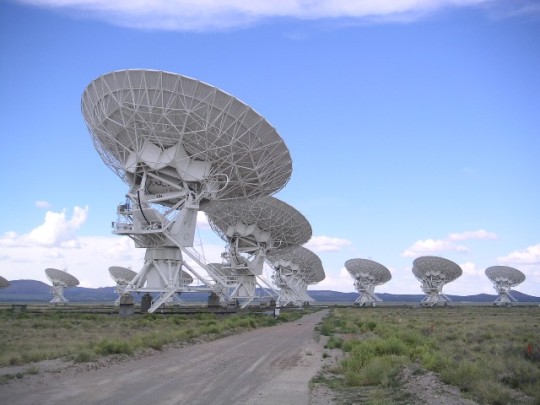
The first sign of extraterrestrial life is shown in the form Ellie discovering a repeating message of sequential prime numbers directed at Earth; this is not something that could randomly occur in nature. This is where the meat of the story begins; the crossing of the threshold. At first there’s skepticism among the scientific community, as there should be, but the message is received by unassociated and independent facilities. As the scientific community works through political channels to ensure redundant monitoring (this is set during the Cold War era) humanity is temporarily united in this realization that we’re not alone in the universe and a desire for further knowledge. This all culminates in the discovery of humanity’s first ever high-powered radio broadcast embedded in the message being returned to us, and industrial innovations and schematics needed to create a machine of unknown purpose embedded even deeper. Thus ends Act 1.
The Machine:
Tests, allies, and enemies are abundant in this part of the novel. Honestly, this is one of the most exciting parts of the entire story for me with all of the political machinations, discussions of about the new technology imparted to humanity by the extraterrestrials (nearly all of which are theoretically possible and grounded in real science), and discussions surrounding the philosophical implications and dilemmas of this new reality. I will glaze over most of it because otherwise this post would truly become a short novel in its own right.
The most important bits to take from this act (in my opinion) are the tests and enemies and approaching the inmost cave. The tests of Ellie’s dedication to following through with her life’s work in finding new funding and conquering adversity in the form of unnecessarily contrarian colleagues and critics, personal relationship, and physical and psychological recovery after a traumatic event. The enemies of this act are primarily the extremist religious and political groups which oppose the construction of The Machine and/or want to bring on the rapture, and . They ultimately destroy The Machine which is being built and funded by the government of the United States in a terrorist attack, and this appears to be the nail in the coffin of the project. The only way in which this is salvaged is through the efforts of an ally Ellie, who has a back-up machine in the works that was being used for “testing” components. The ordeal of this movie is undoubtedly the moment of activation of the machine, when the passengers and the world are witnessing the processes taking place from the opposing perspectives of the interior and exterior. The five passengers within the machine were confronting their fear of the absolute unknown considering this is a machine of foreign origin and technology never before used. Here ends Act 2.
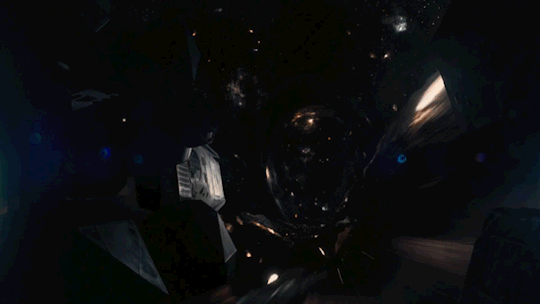
(I am aware that this is Interstellar, not Contact. I just couldn’t find a GIF from Contact)
The Galaxy:
Approaching the inmost cave is what the story transitions into after The Machine activates as the passengers pass into the wormhole network which transports them to The Station. This would also likely cover the Reward (Seizing the Sword) phase. Throughout this sequence in the novel Ellie and the rest of the passengers are getting their first real reward to years of work and dedication with The Message and The Machine, but it’s obvious to the characters and audience that they’re currently in transit somewhere which has further implications on the story/mission. The trip to the station is an endless montage of breathtaking and mind-blowing scenes showing the depth and breadth of the capabilities of the extraterrestrials. Upon arrival, the passengers experience isolation and we later learn that the extraterrestrials were inspecting their memories. They used this data to put each passenger through a highly emotional and cathartic experience which was used to teach each passenger something about themselves of value. It is also when the most beautiful and numinous piece of information is given to Ellie when she asks the alien, who has appeared before her as her dead father Ted, how they experience when they create the numinous (she learned from the alien that the aliens are currently building a freaking galaxy, Cygnus A, using Sagittarius A which is the supermassive black hole in the center of our Galaxy, and is a massively powerful source of radio signals. Already a freaking numinous feat). It answers with Pi. Imagine how this would impact Ellie. Her "discovery” of Pi was one of the most formative experiences of Ellie’s early life. Specifically, the alien states that buried in Pi’s decimals is an encoded message. Imagine. Pi is a universal constant. It is something determined by physical and mathematical relations that just exist; you can’t “build” or “encode” Pi. The alien goes on to describe how they found this message in vague detail and directs Ellie on where to look.This entire combination of phases only concludes once the passengers have returned to Earth.
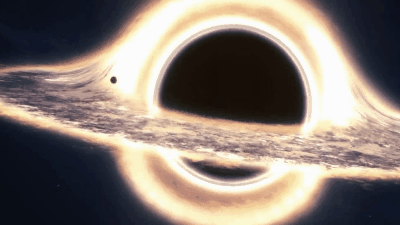
Their return could likely be classified as combination of the Roadblock phase. Upon their return to Earth, rather than Ellie and the other passengers having a triumphant and joyous return no time appears to have passed on Earth, despite them having spent hours if not days on The Station. They are questioned. There are Inquiries. Politicians and the public are furious that billions of dollars were “wasted” on something that apparently just spun up to a specific speed in place, then stopped. None of the instruments of human origin attached to The Machine recorded anything; there was no sense of movement, no great amount of time had passed just mere moments, no radiation, nothing. Eventually, all of the inquiries “determine” that it was all a big hoax perpetrated by some evil capitalist (the ally that Ellie secured funding and the backup machine from) in order to amass wealth and develop a monopoly on many of the associated technologies and emerging industries. The detection of The Message was all done via the coordination of desperate SETI scientists with this man and his satellites up in space to defraud the world. Fortunately none of the passengers are punished in any way, despite many of them having been scientists deeply involved with the discovery, decoding, and understand of The Message and the construction of The Machine.
The Return of the Elixir phase in this novel is both a phase to be celebrated and mourned. Ellie discovers that her father Ted wasn’t her biological father and that instead the man she thought was her step-father was her biological father. This is a loss of identity that she mourns deeply, but with the experience, perspective, and humility she has gained through this whole journey she is able to forgive her mother’s infidelity and come to terms with this bit of knowledge. She is also able to conduct research regarding Pi to help confirm her story regarding their journey in The Machine and discovers the message hidden in Pi’s decimals. A perfect circle. Ironic as hell and yet an absolutely beautiful impossibility thrown in by Carl Sagan that elicits a sense of the numinous in anyone I know who has read the novel. In closing, not only has Ellie’s Heroes’ Journey given her more wisdom and grace as a human, but also a powerful piece of knowledge that validates her entire experience and does the very thing scientists hunger for the most: she expanded humanity’s understand of the universe and of how much there is more to discover.
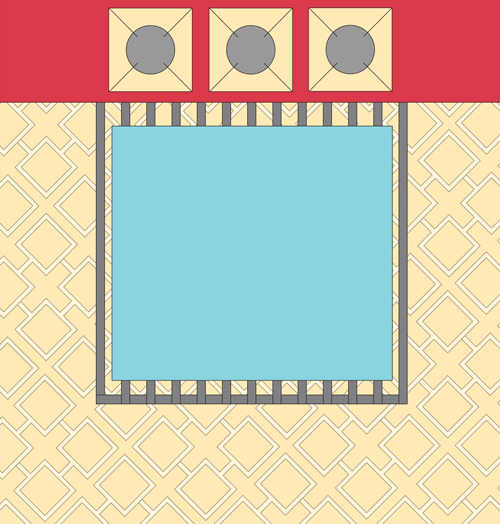
I know that that was one hell of a lot of word vomit on the blog, so if you read it all the way then thank you.
26 notes
·
View notes